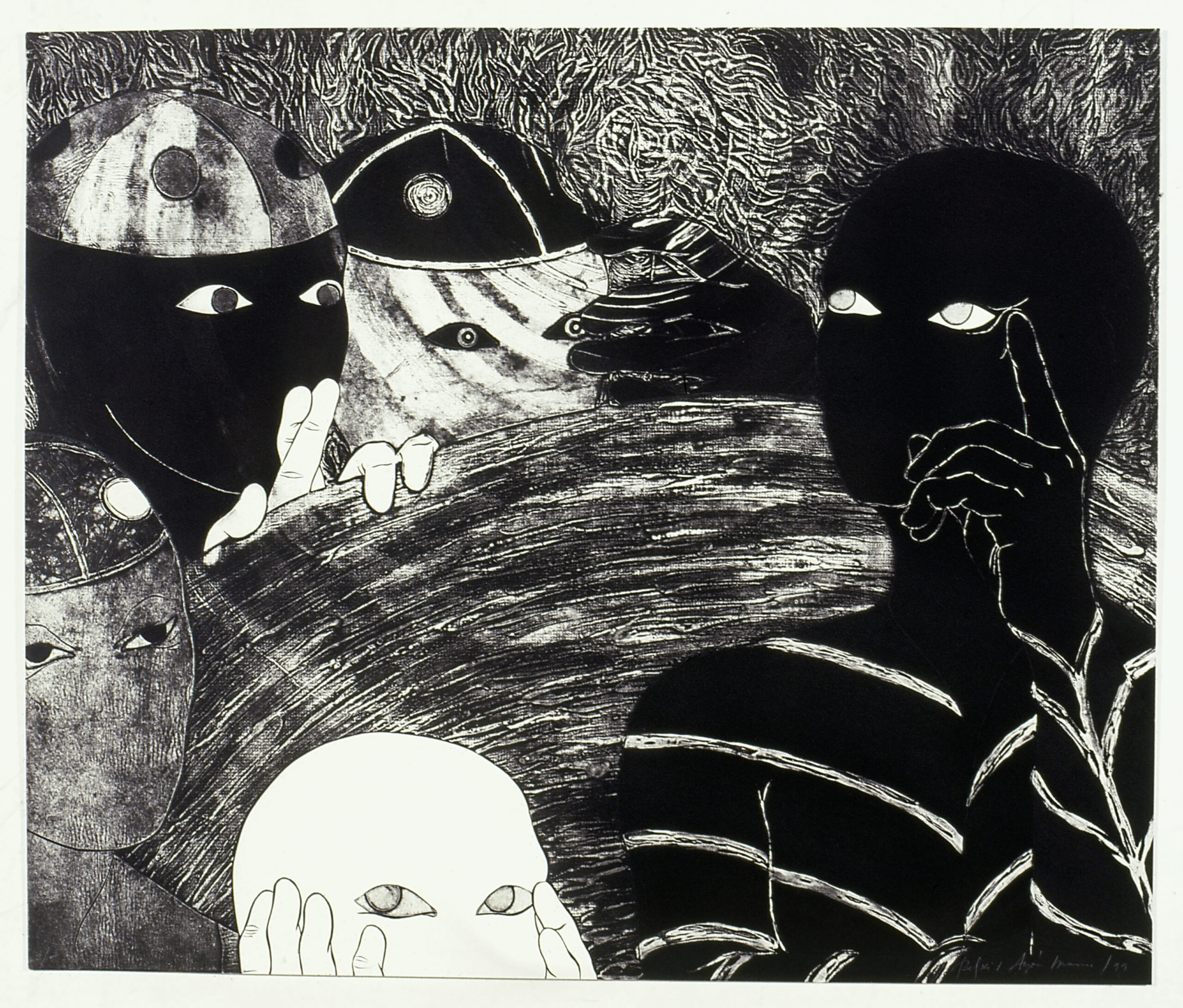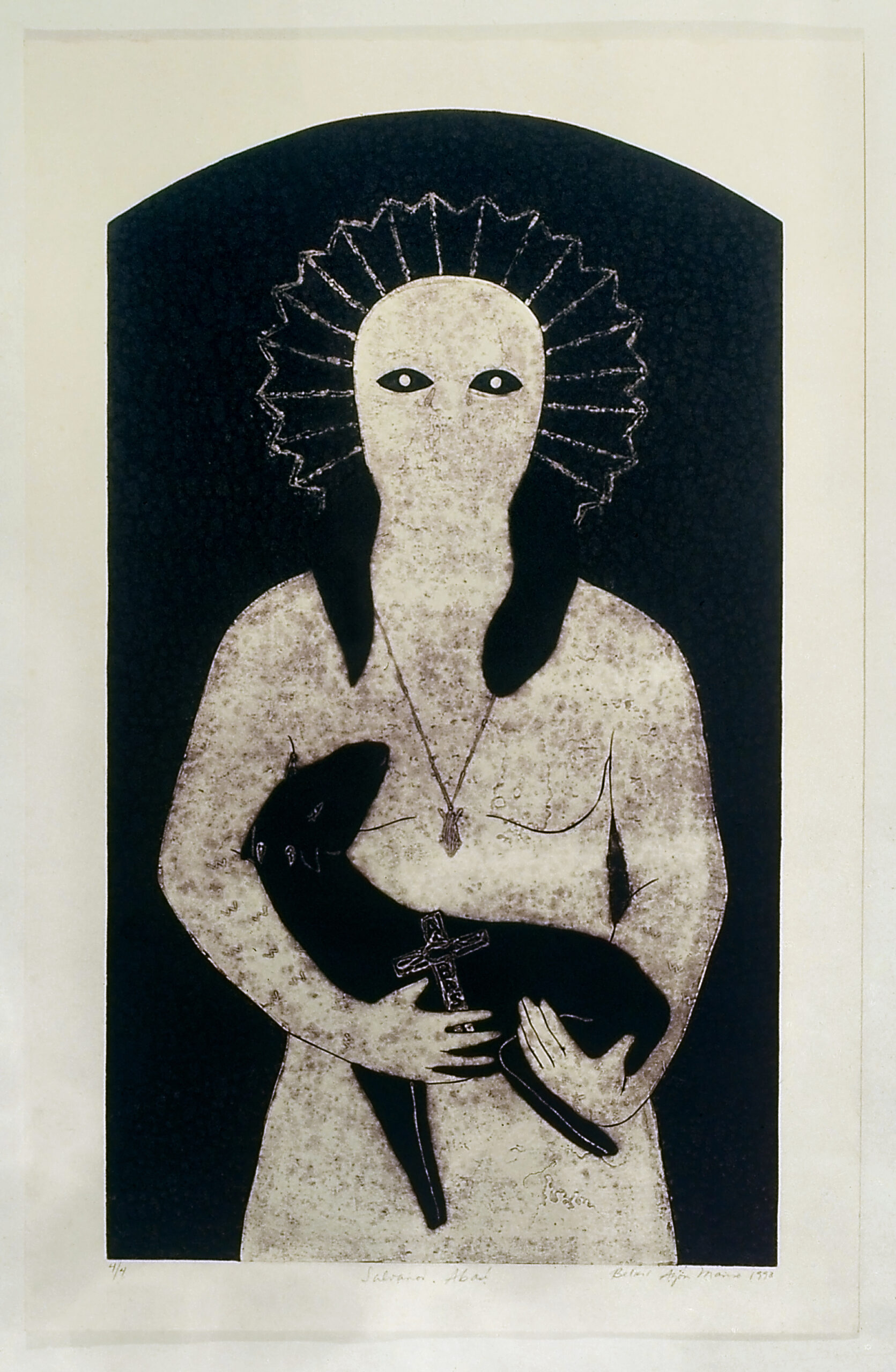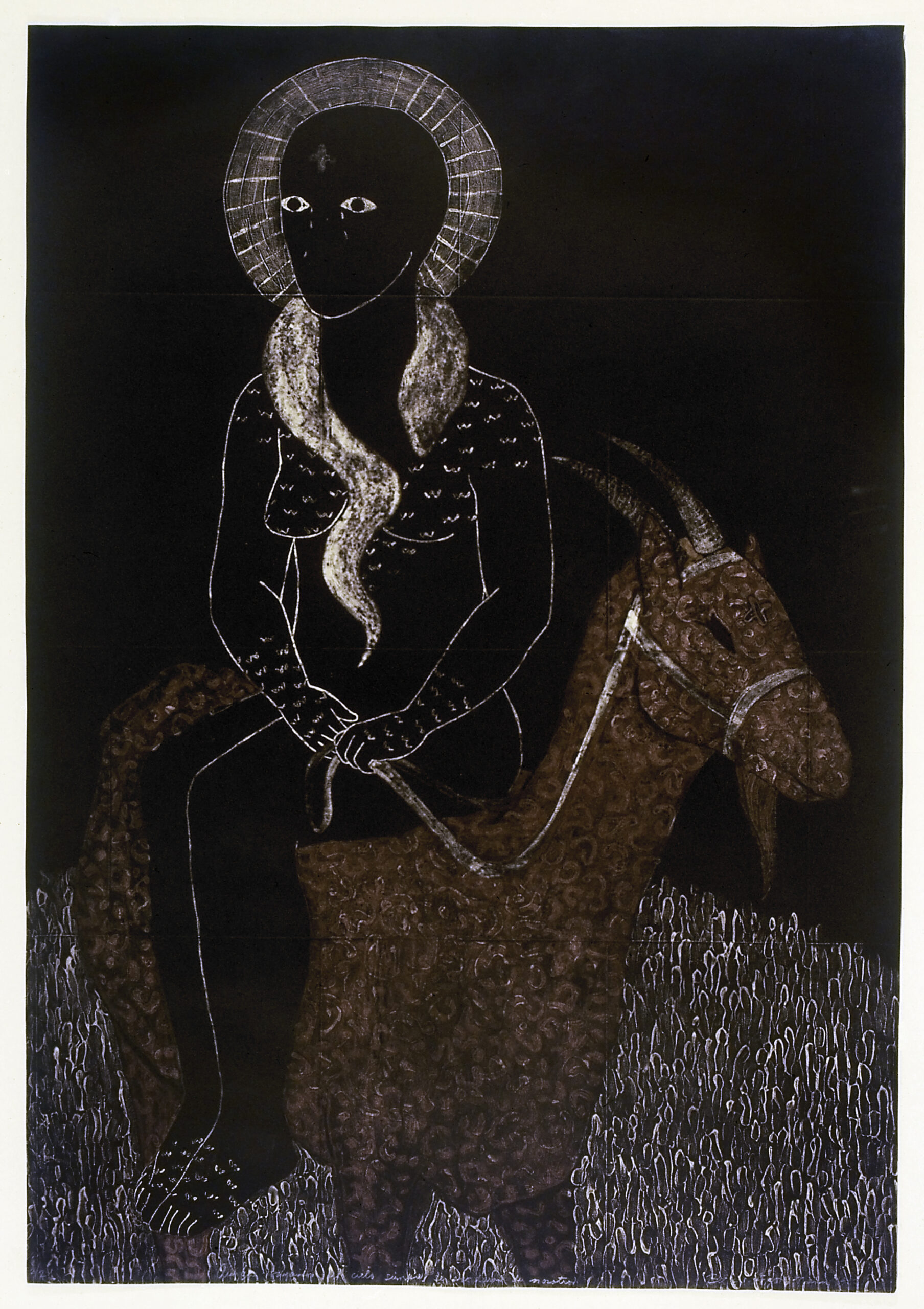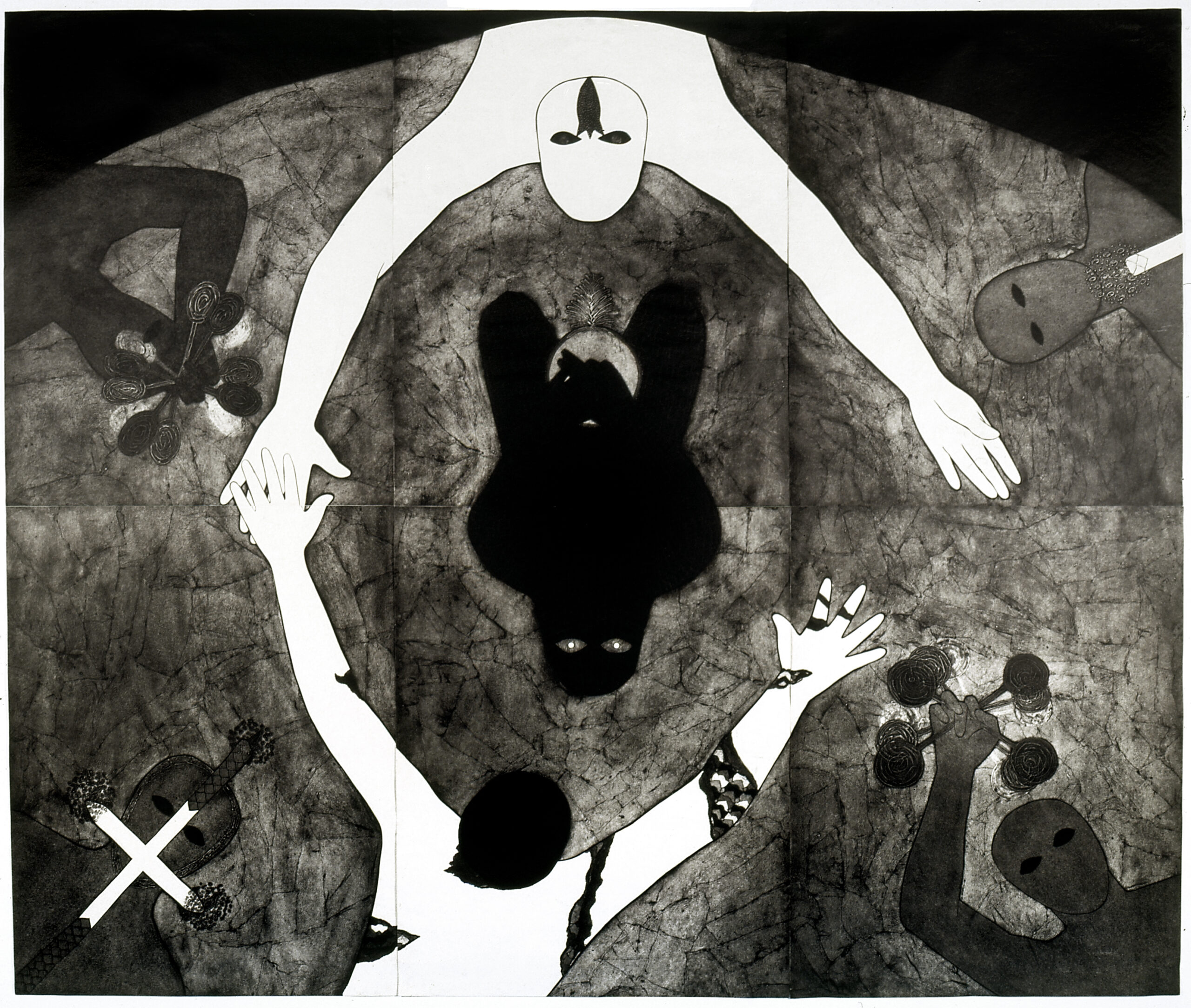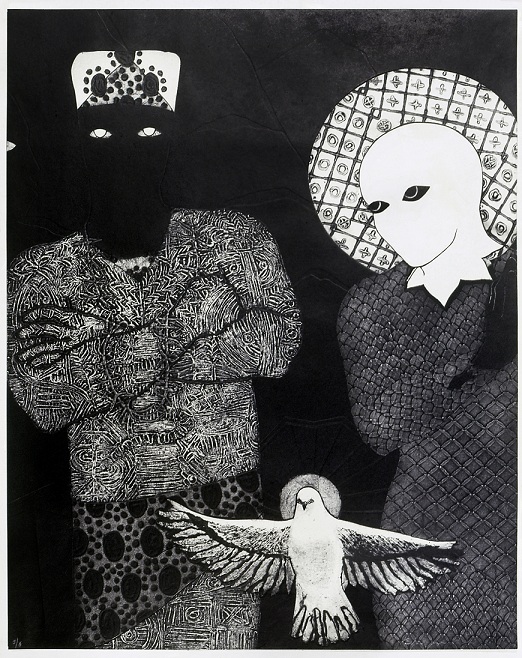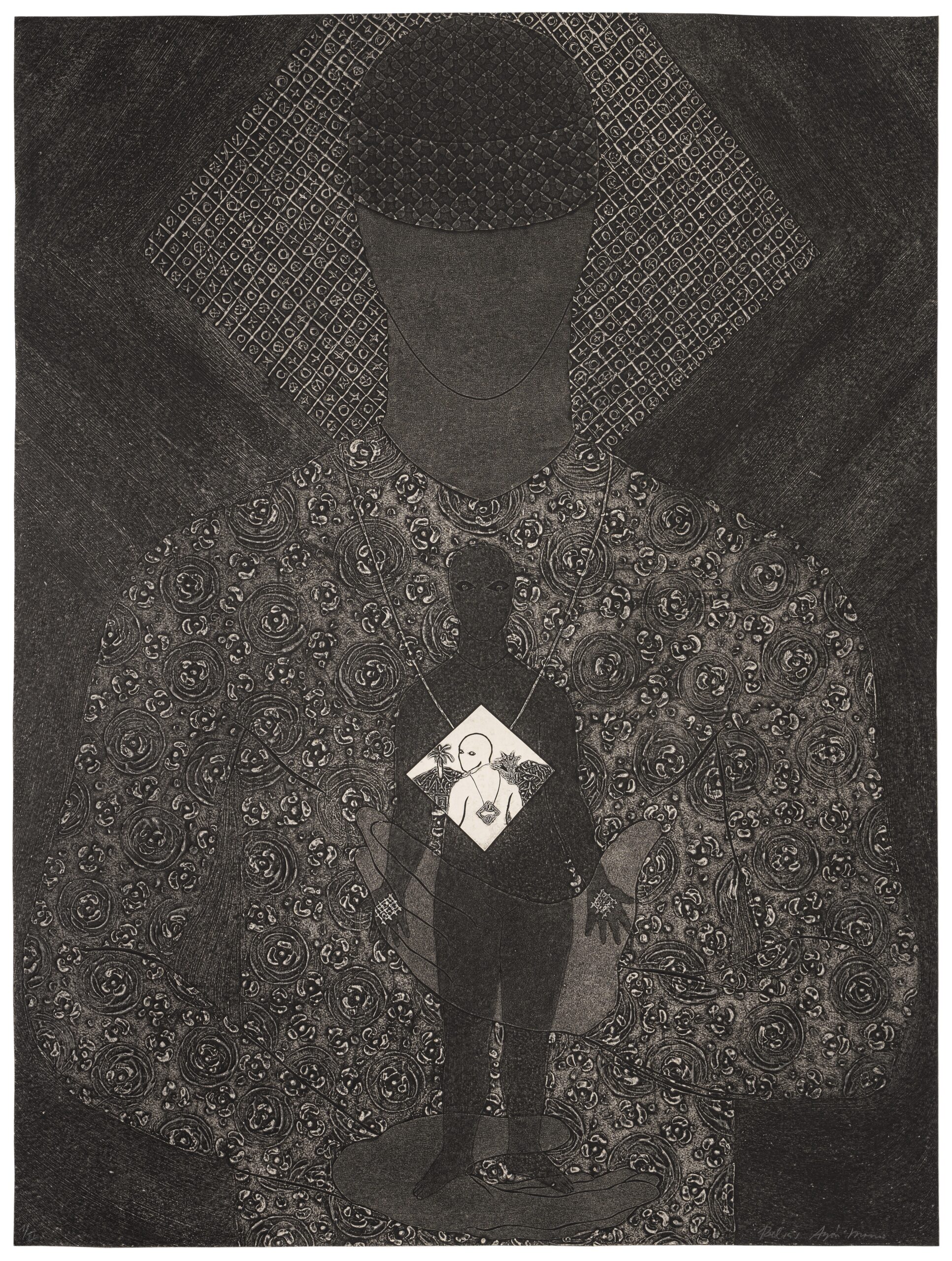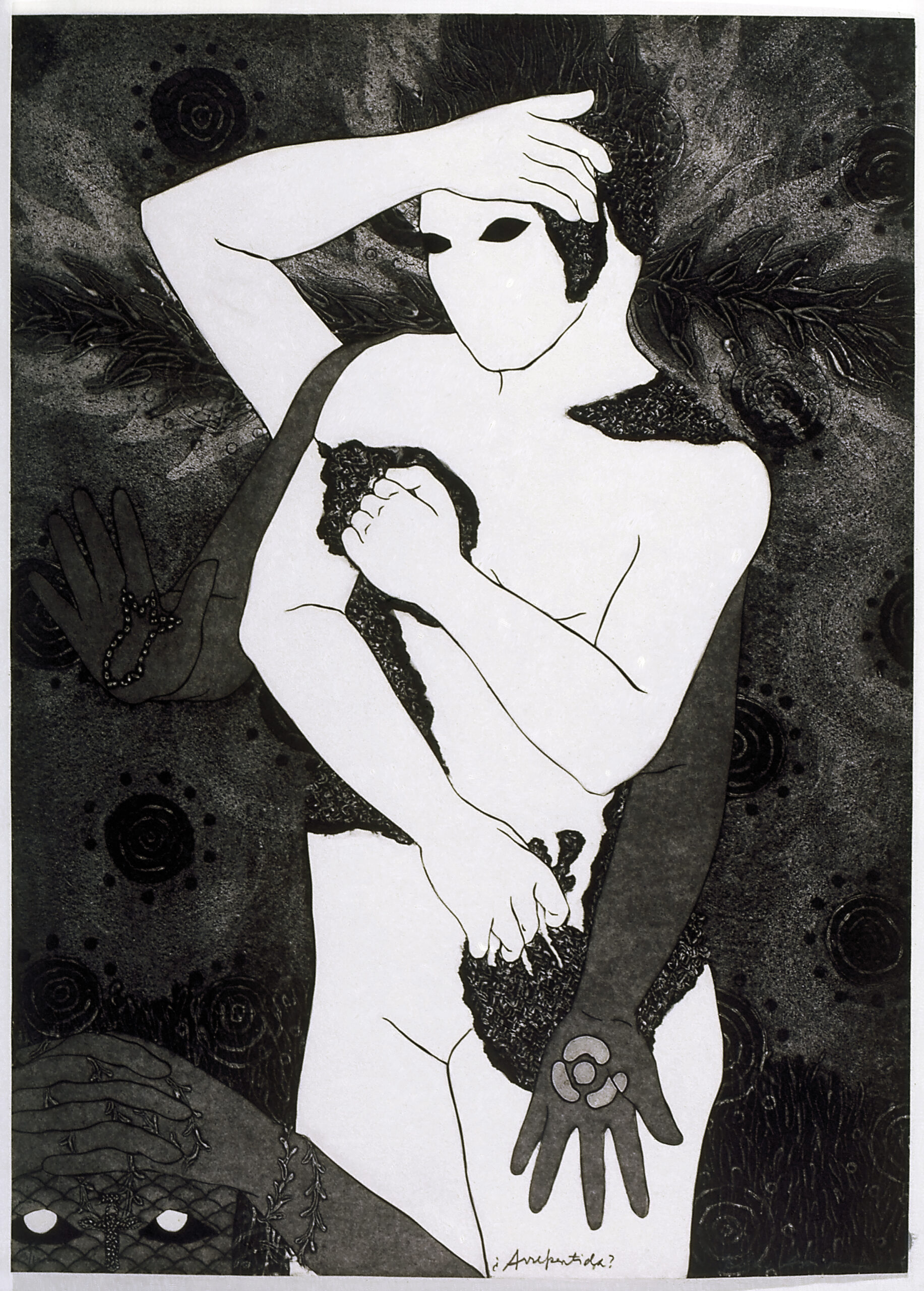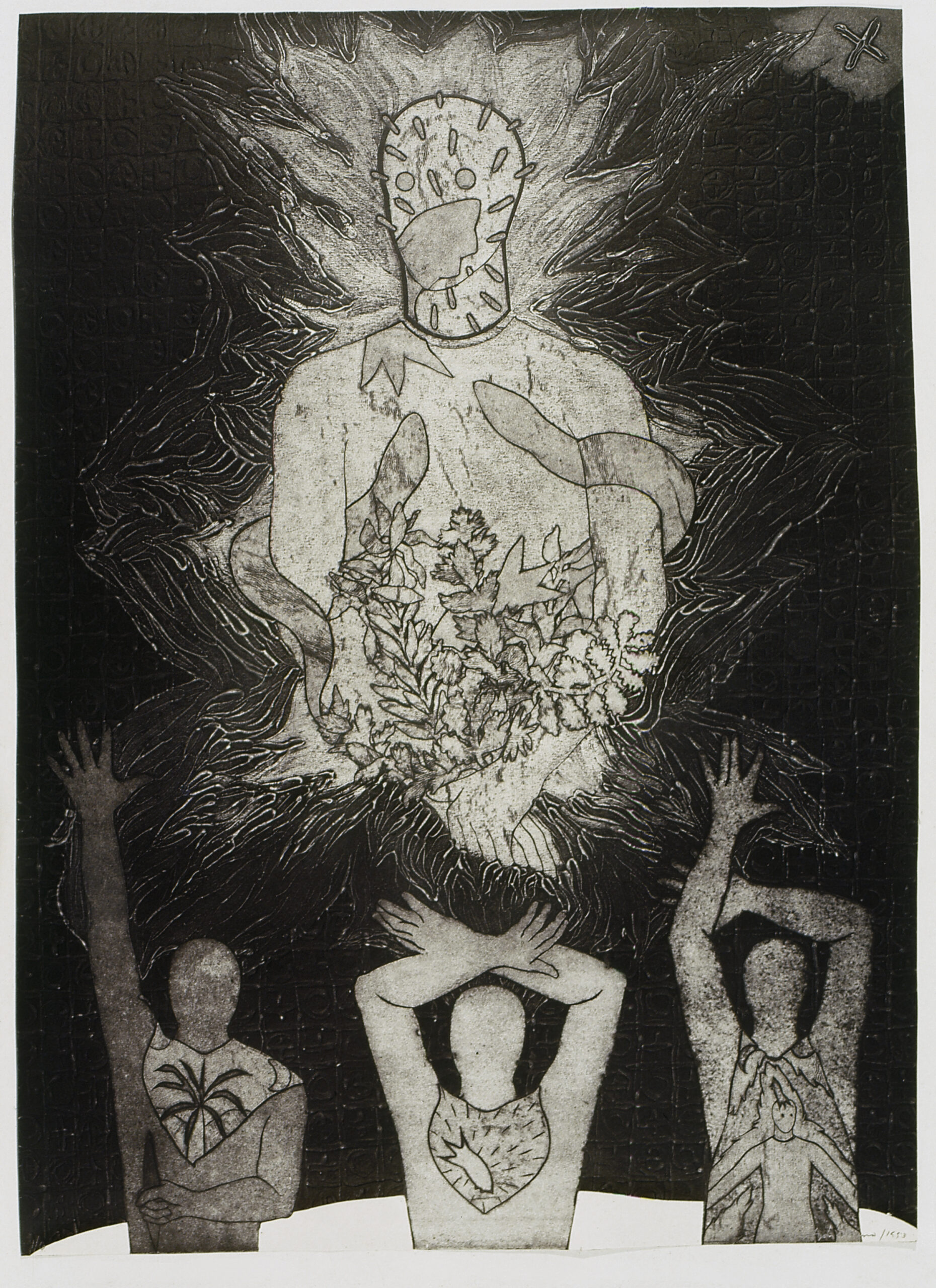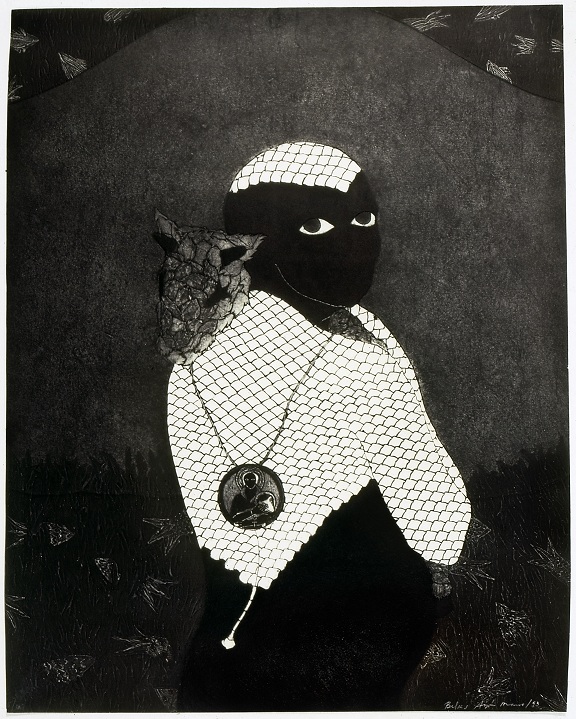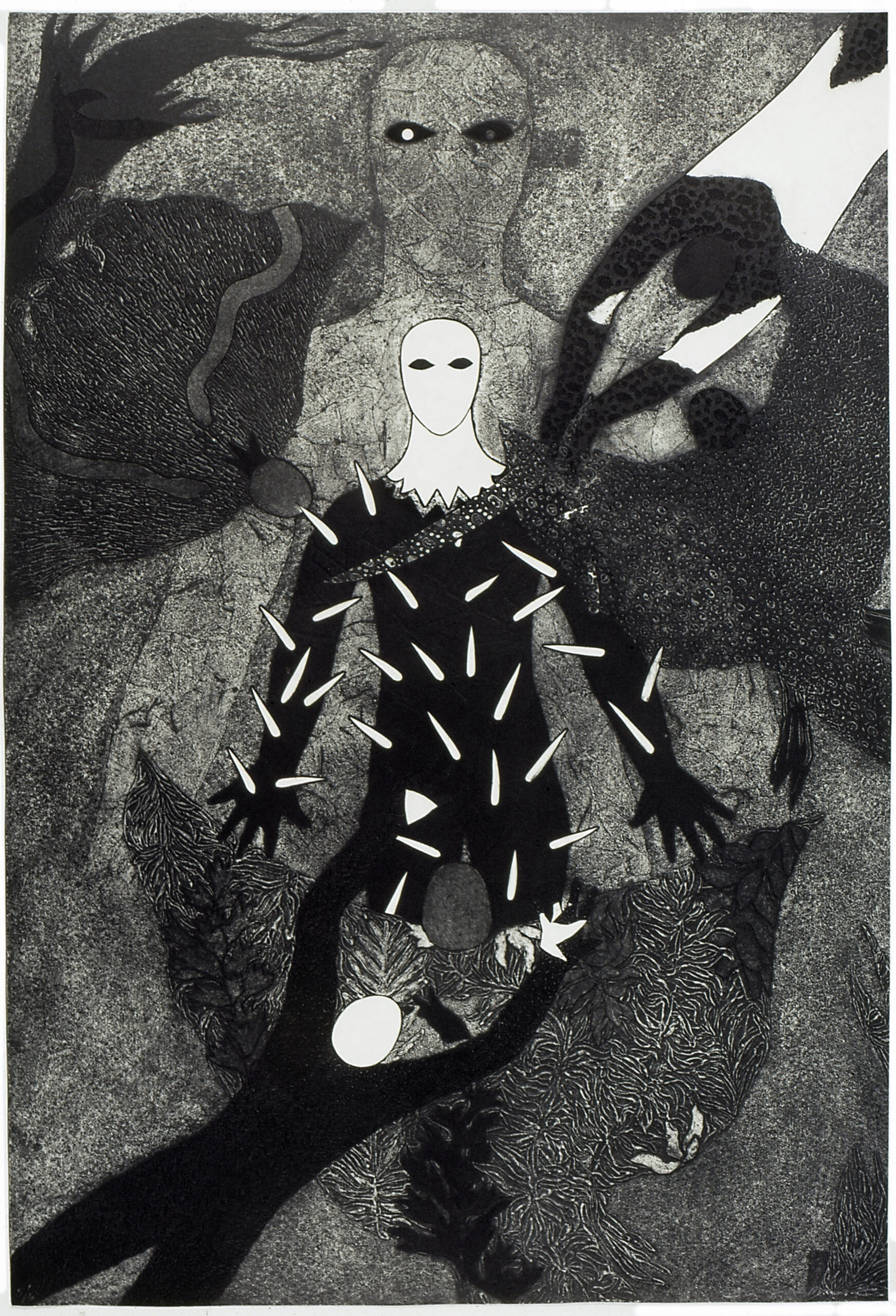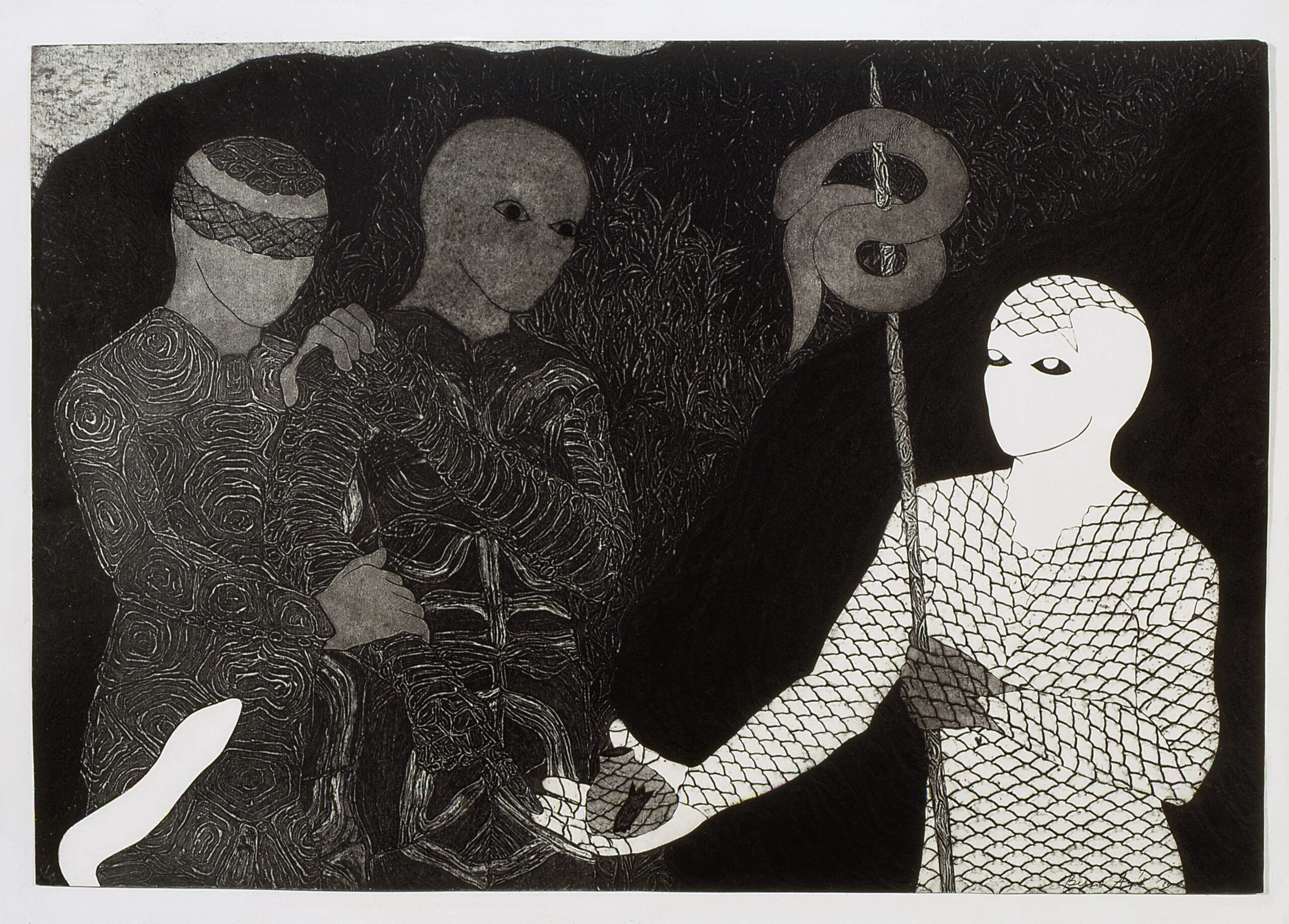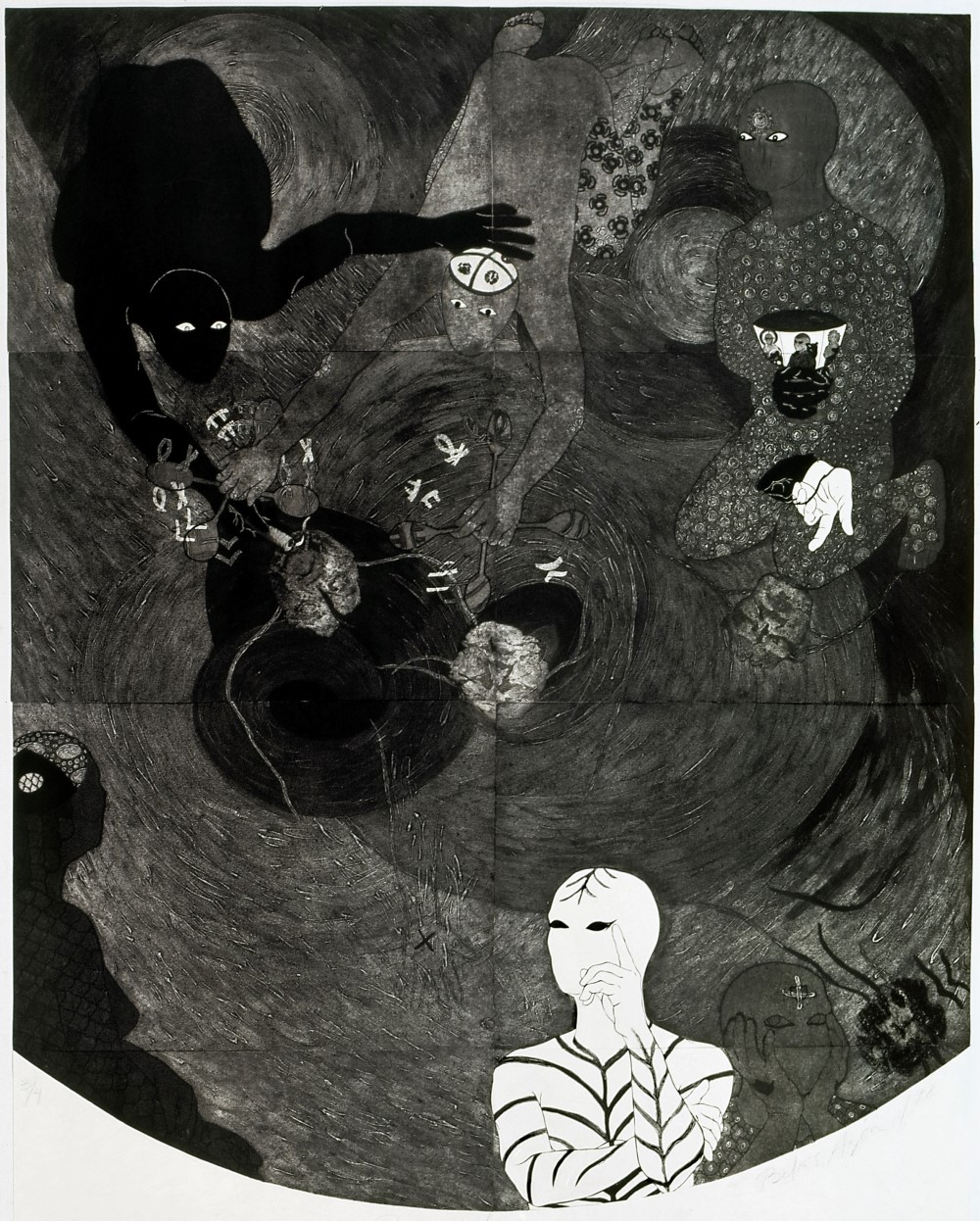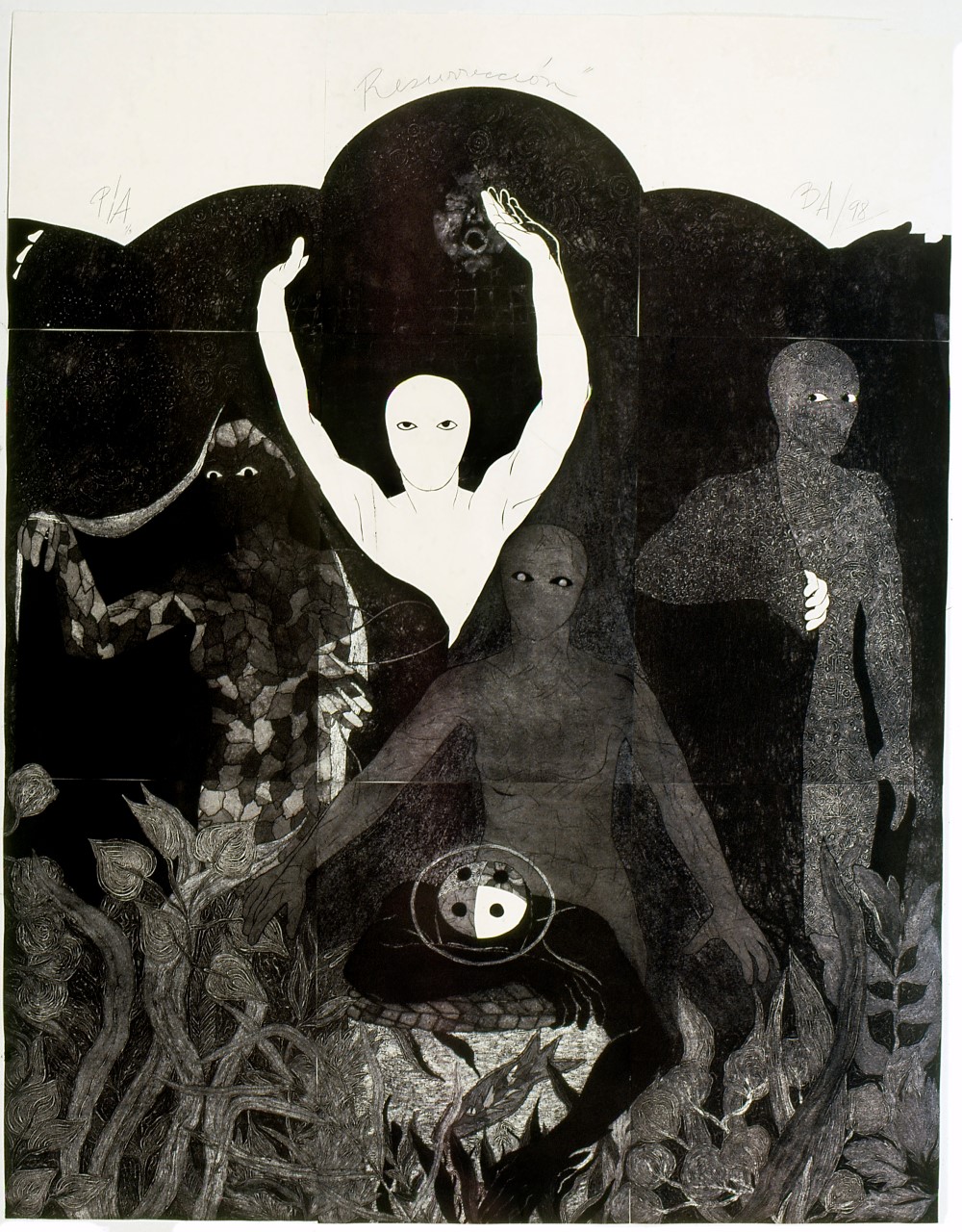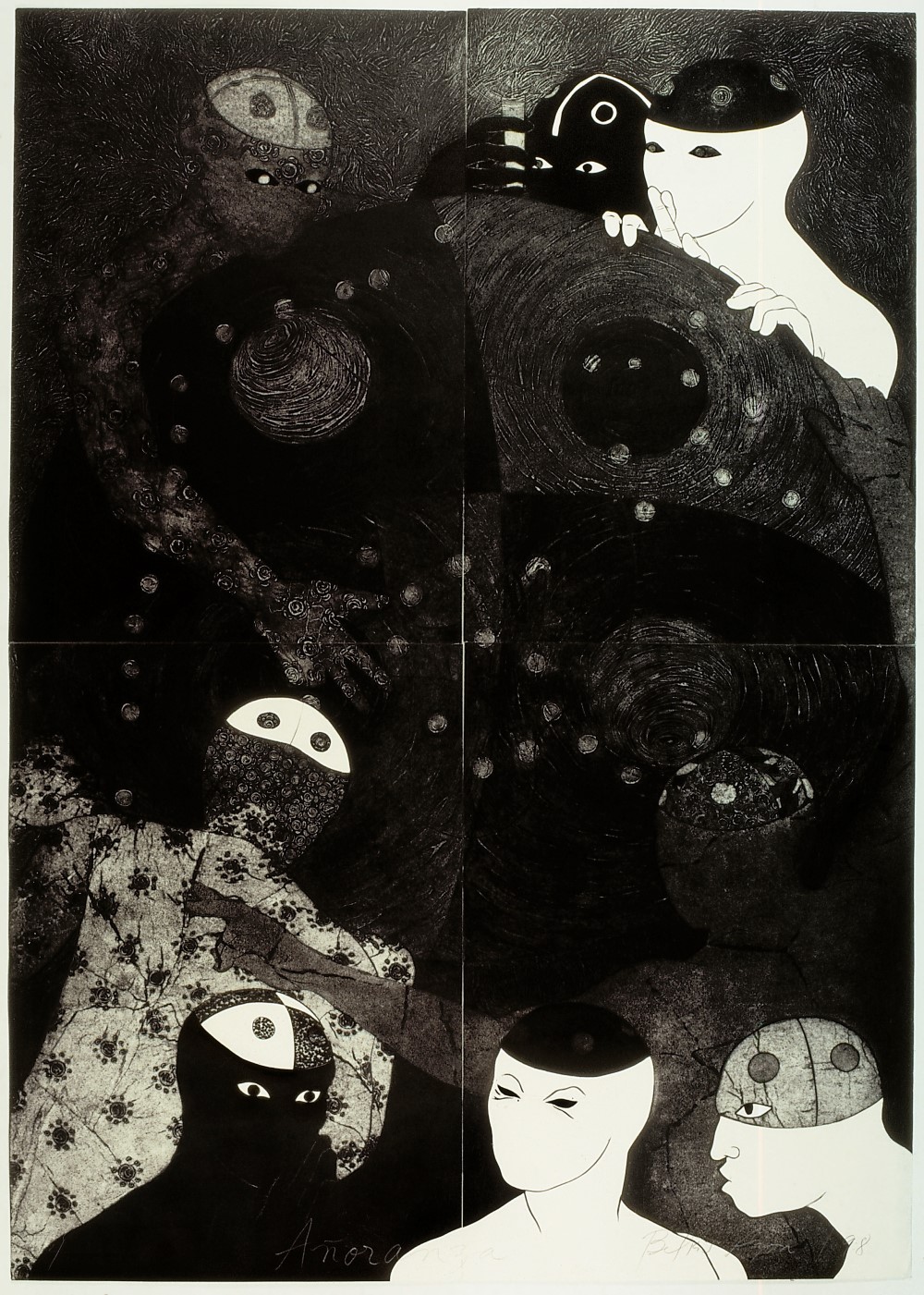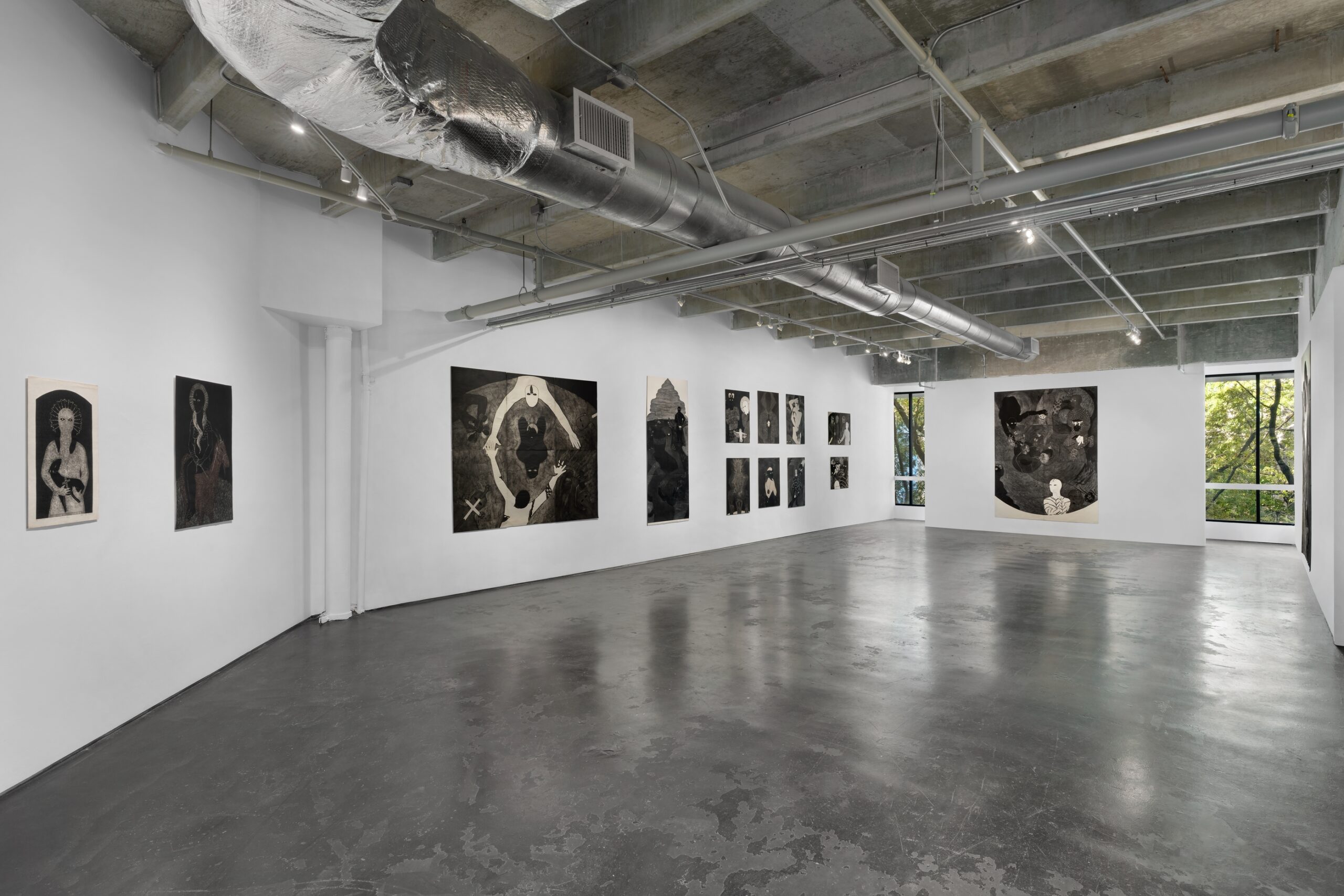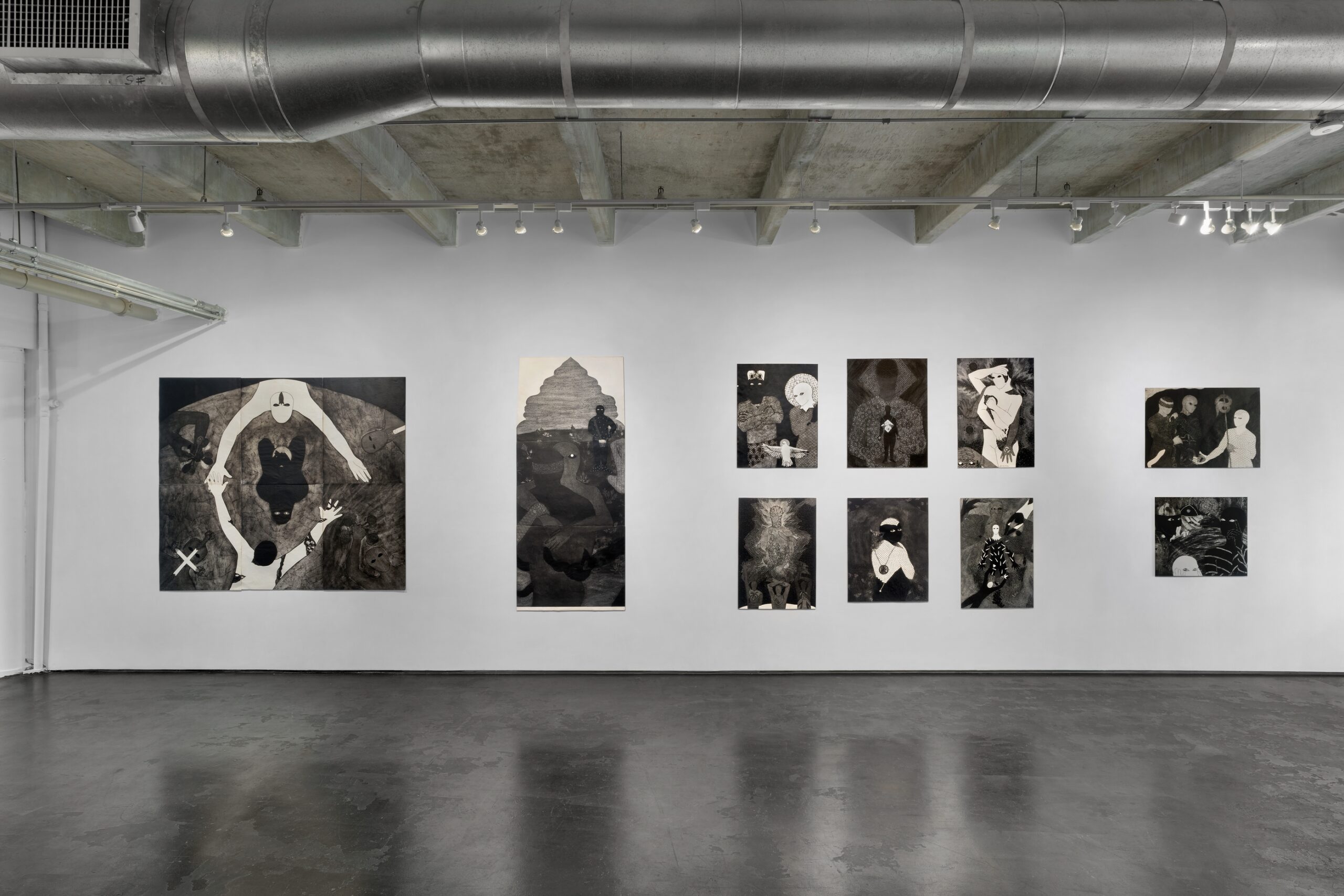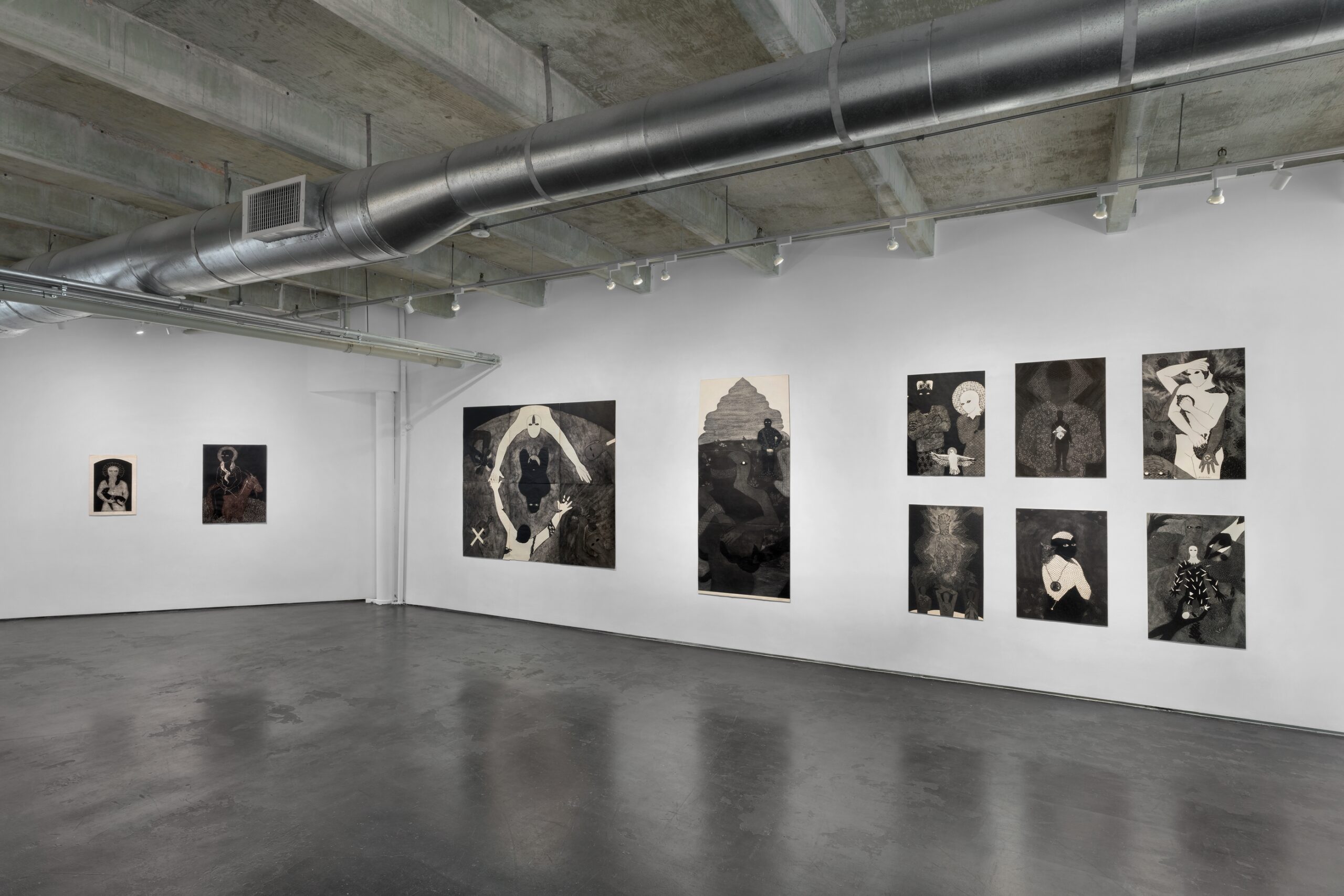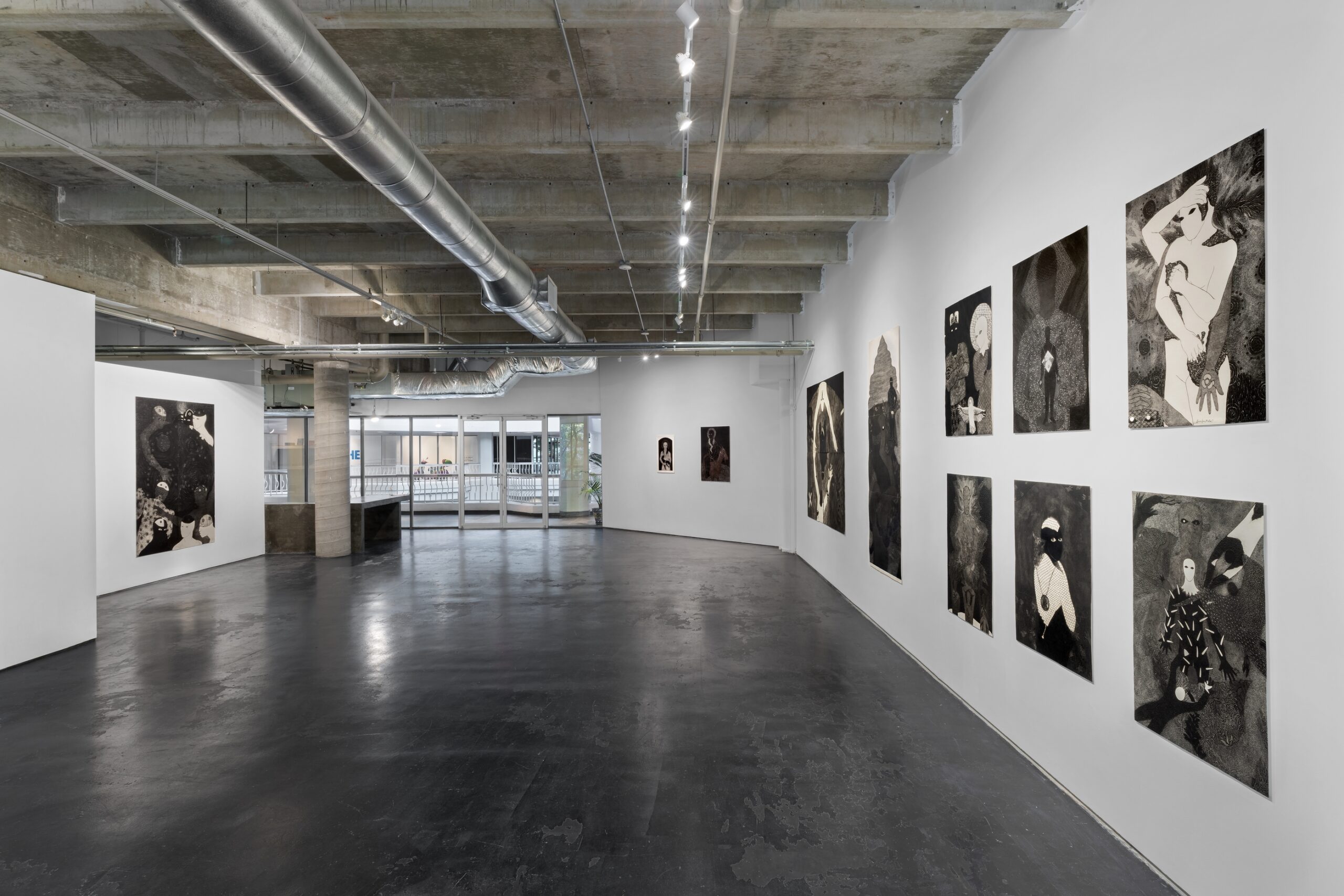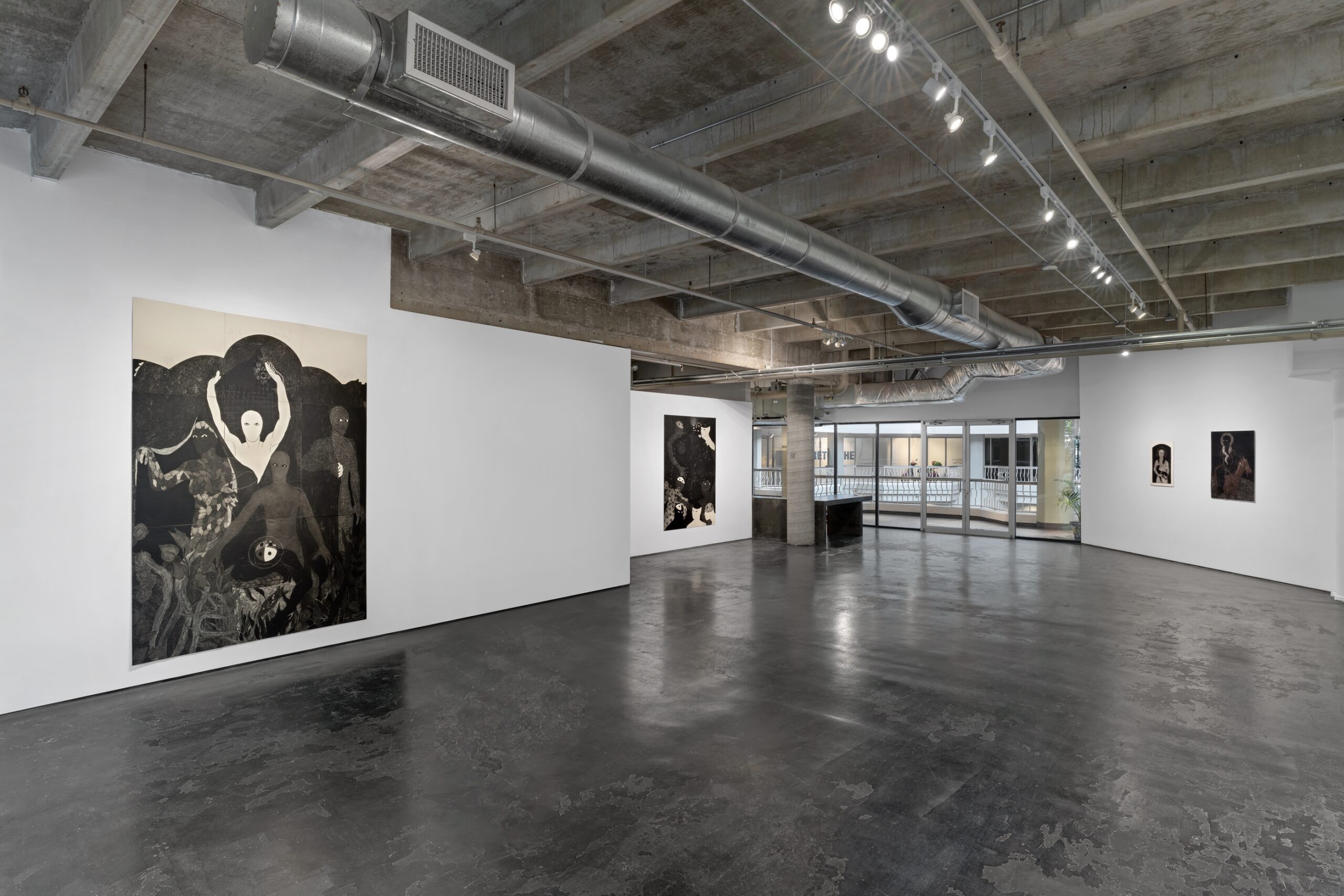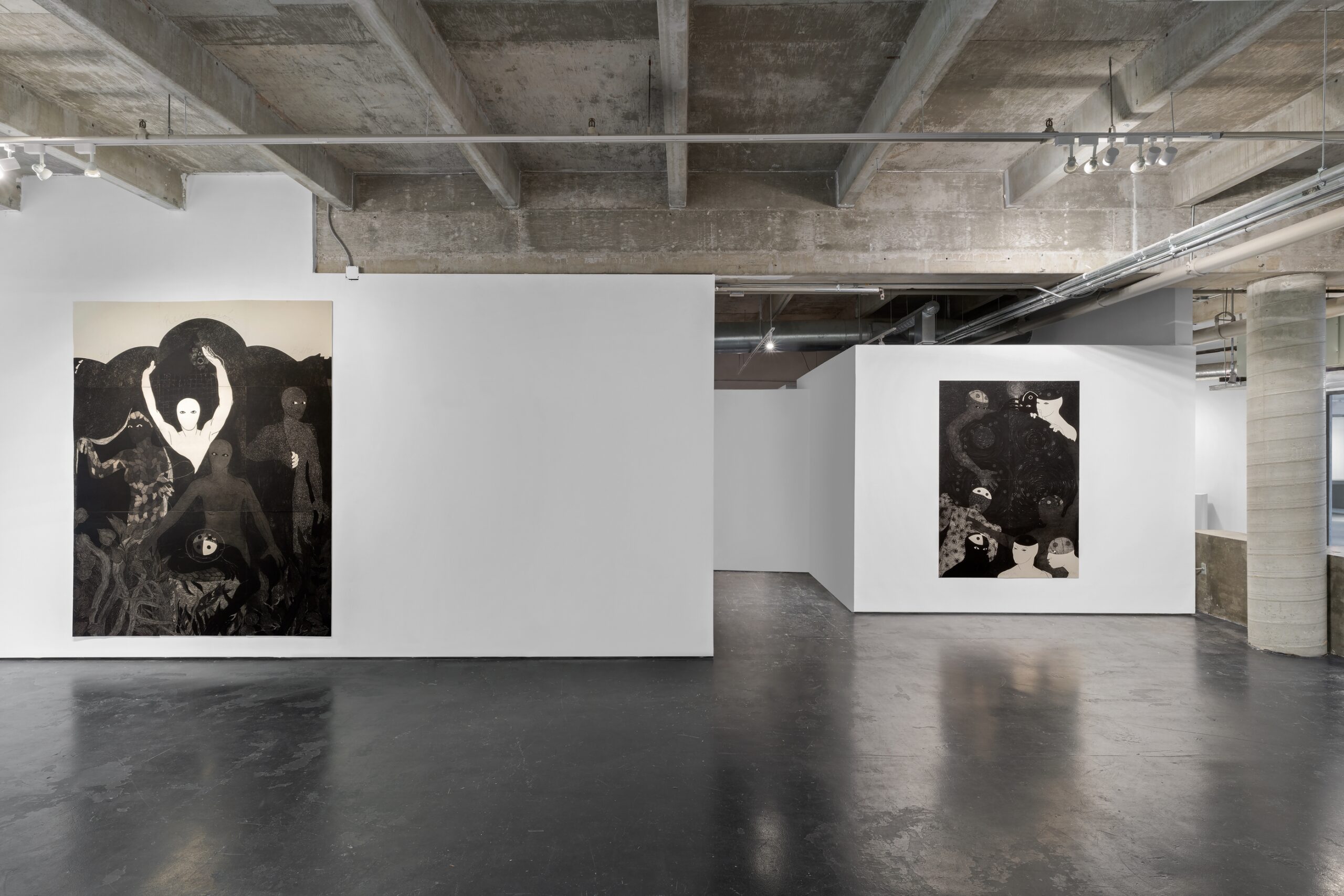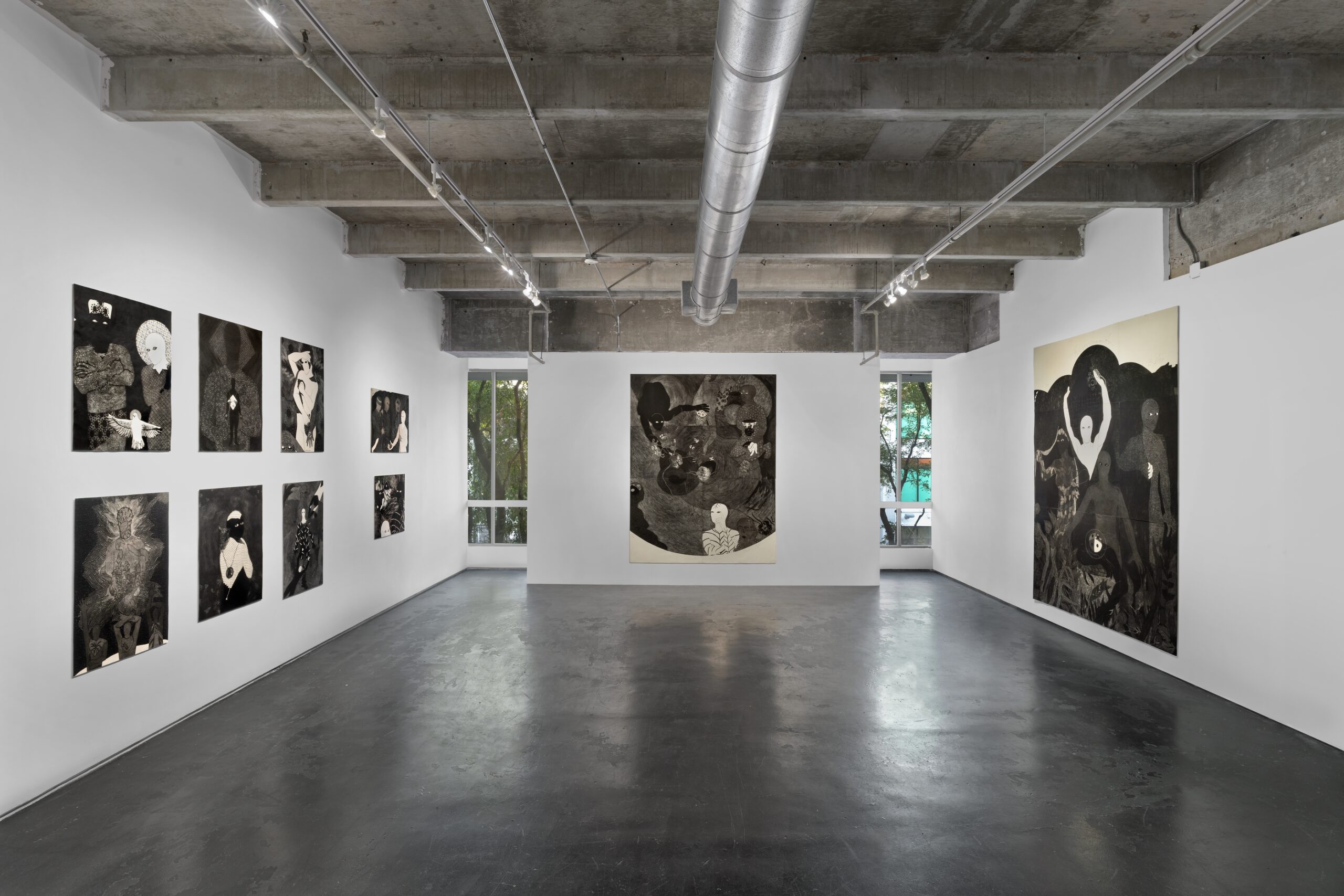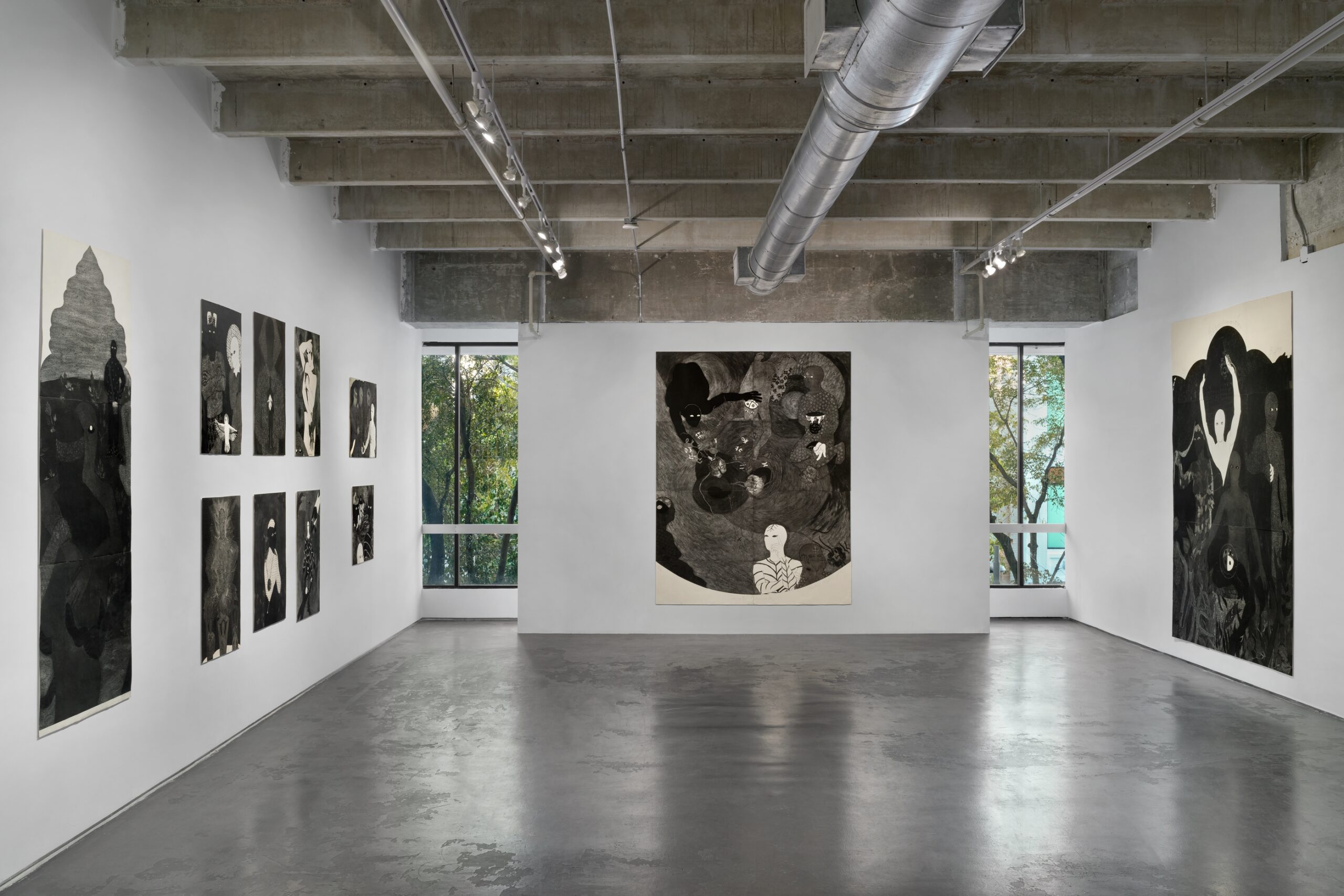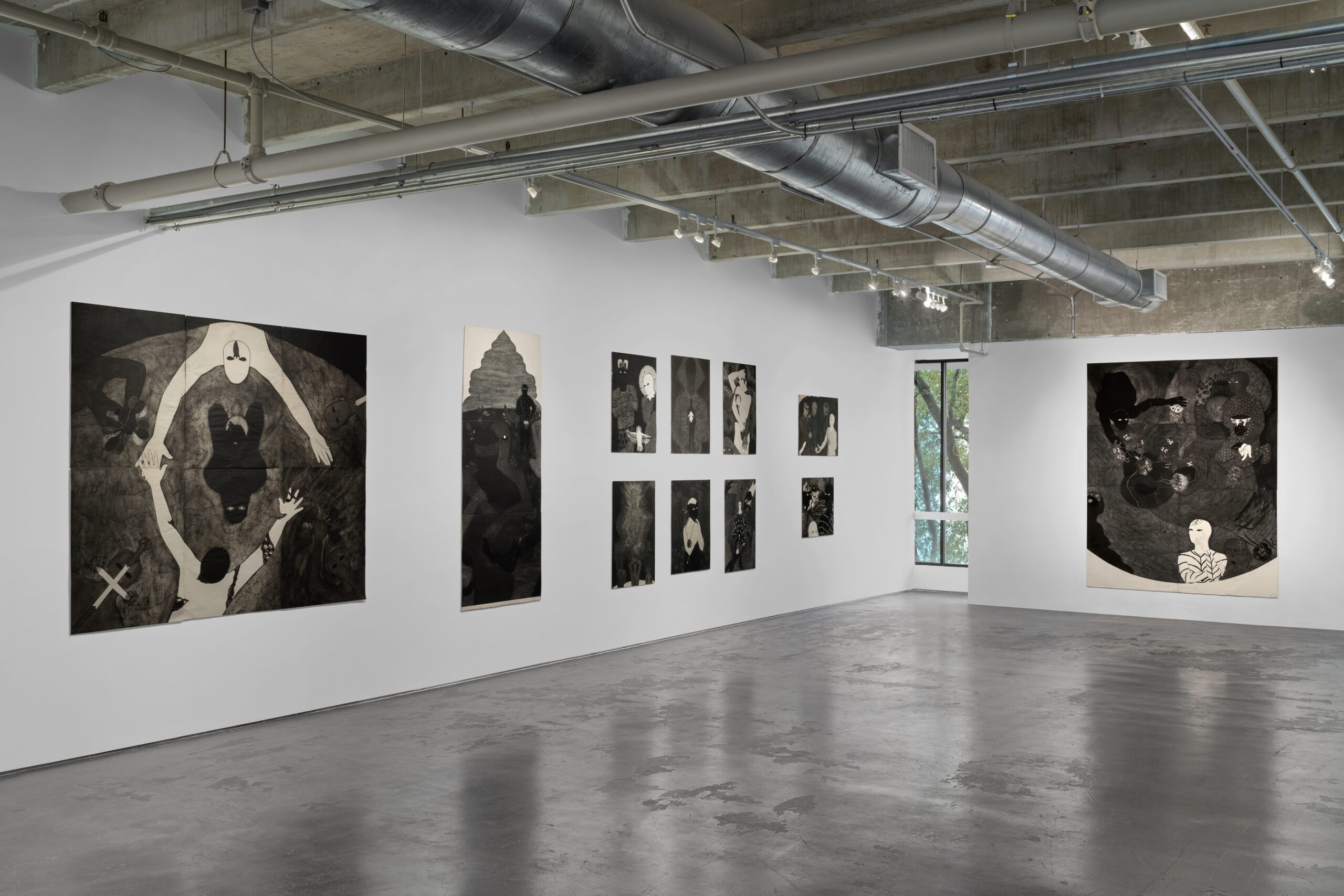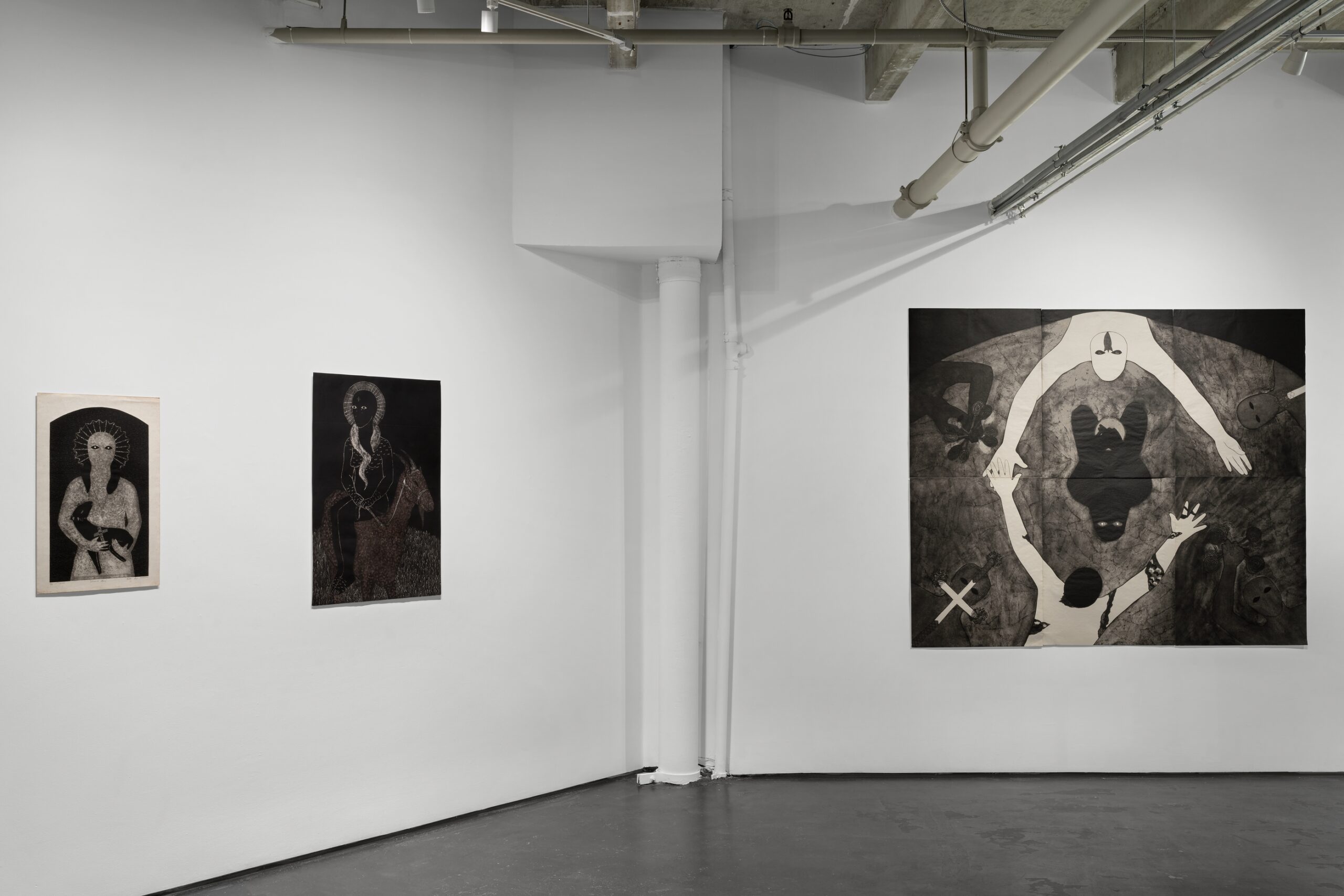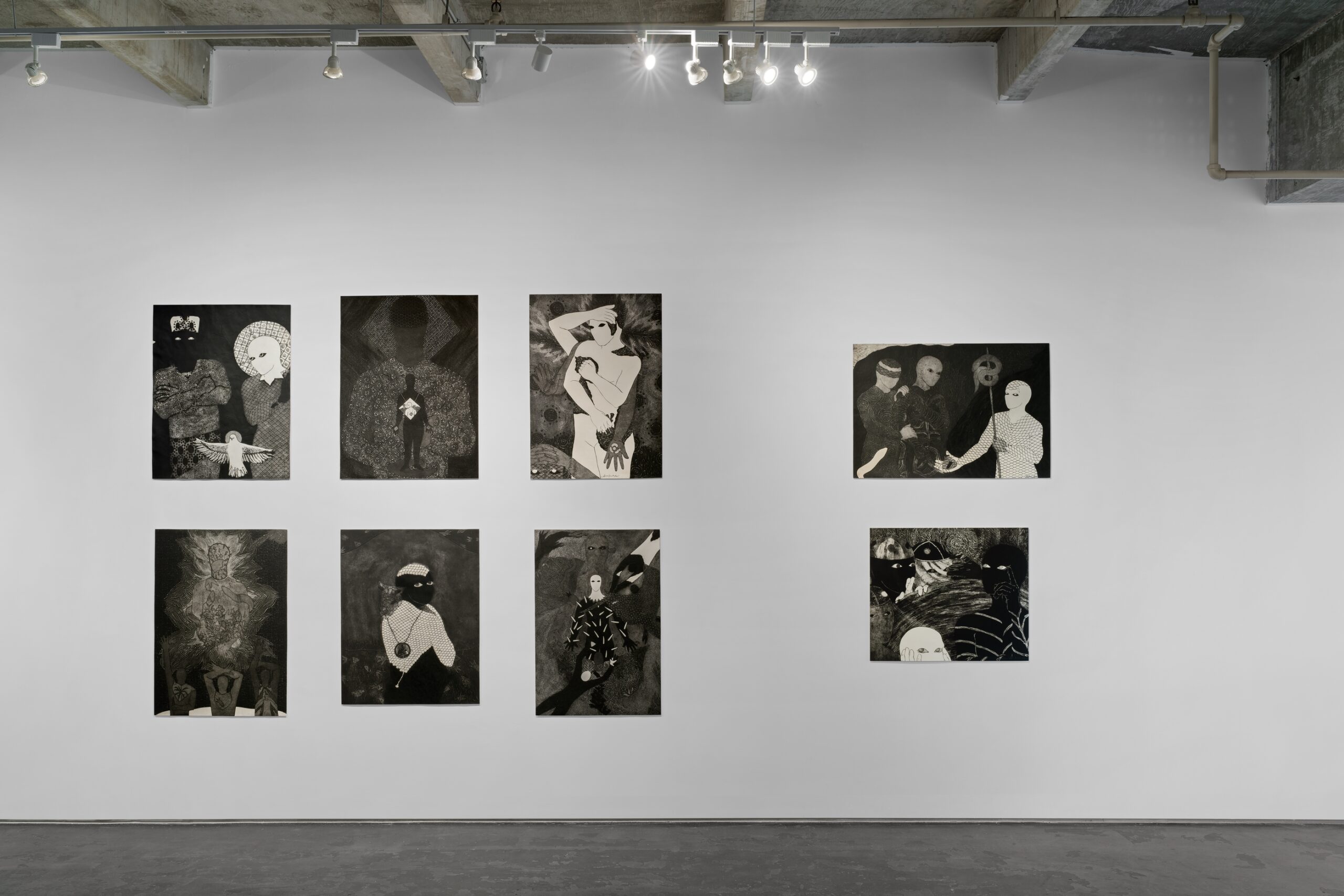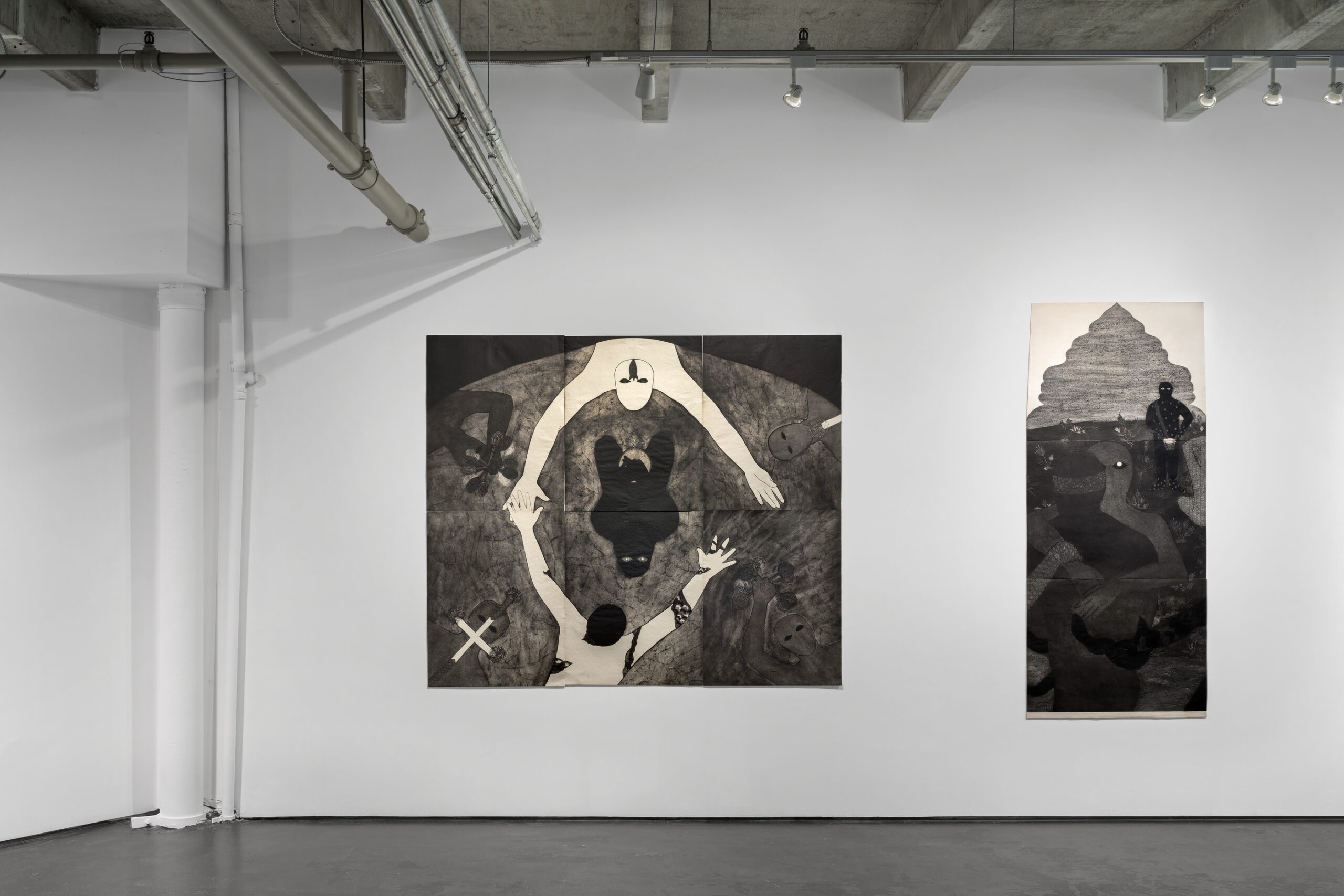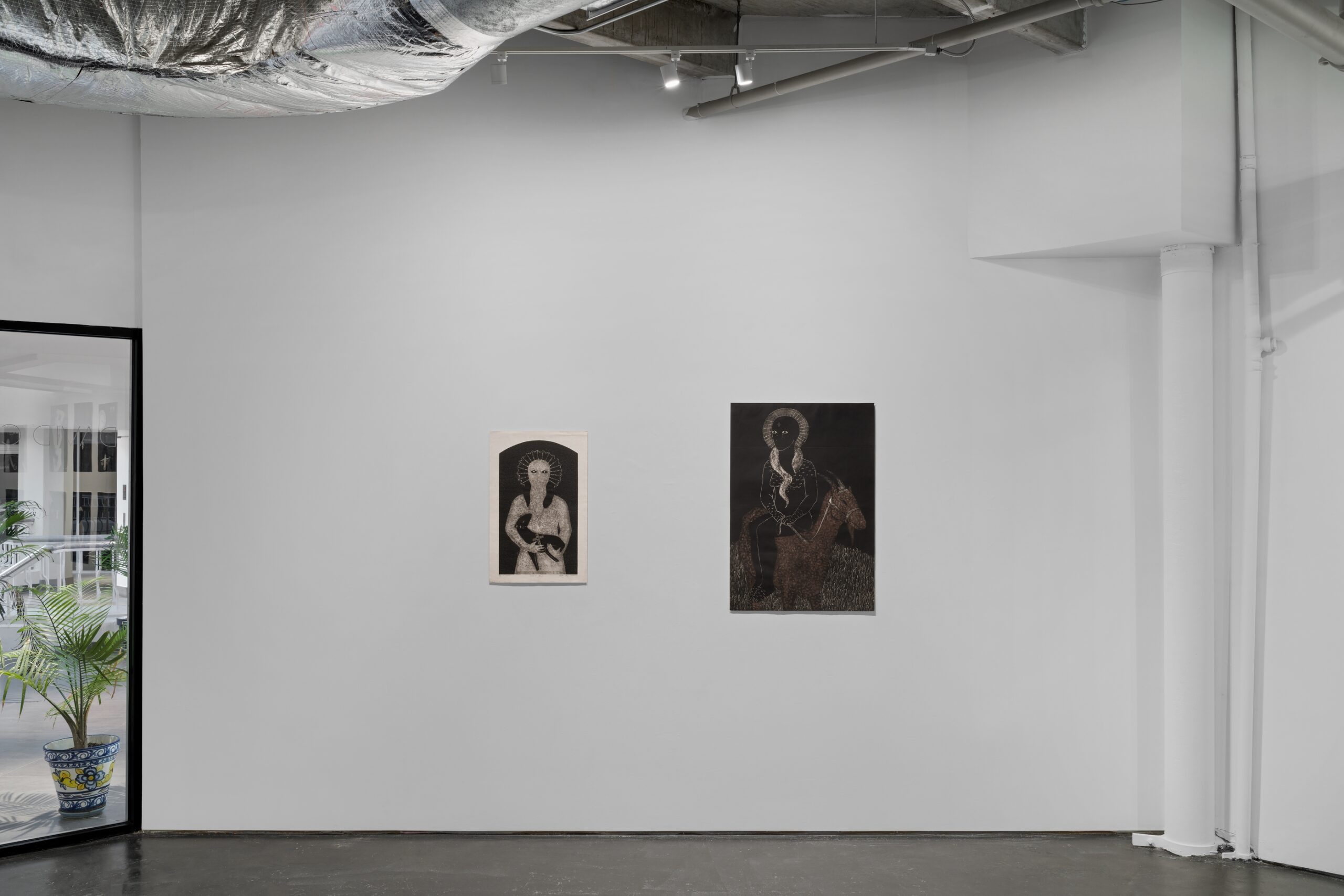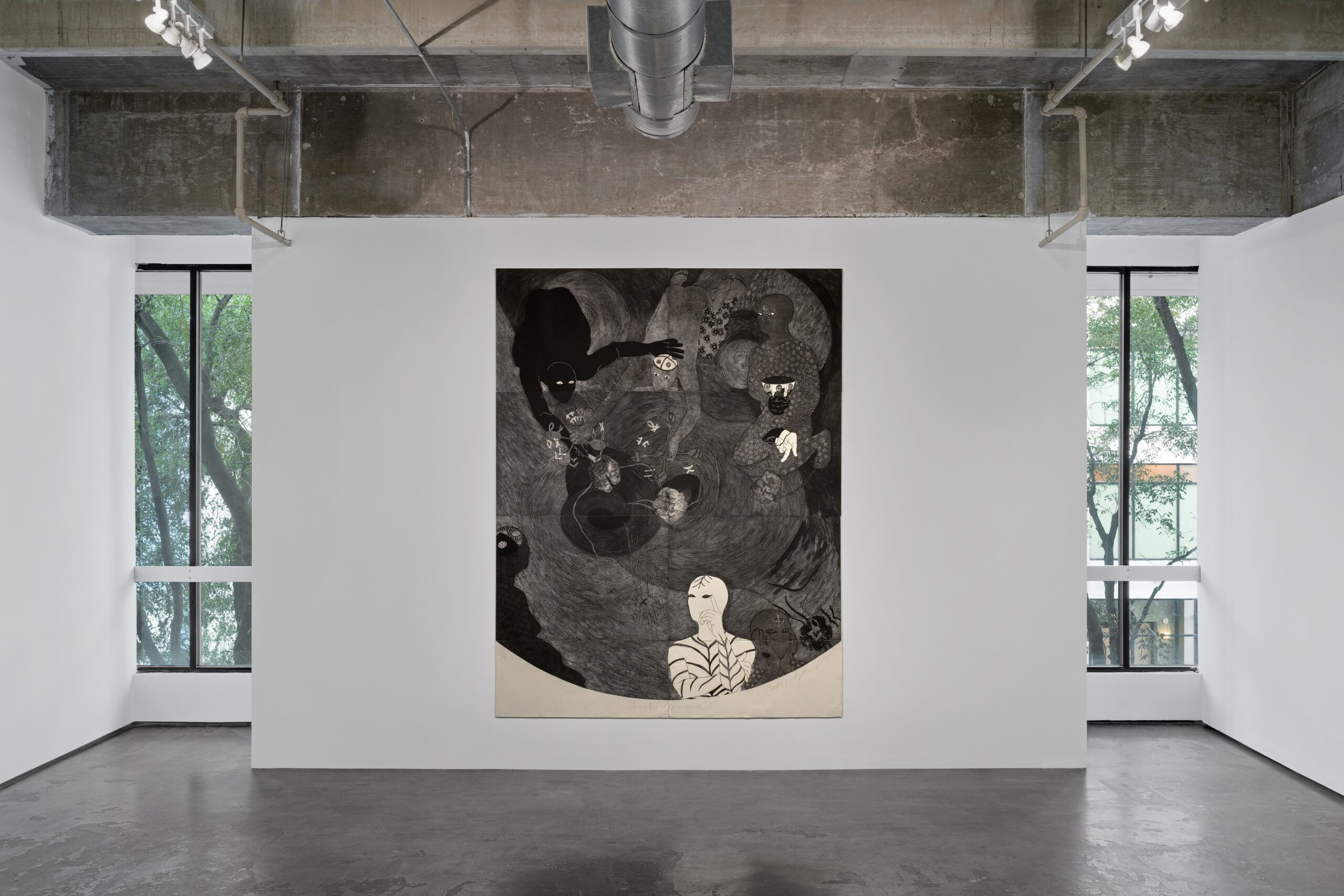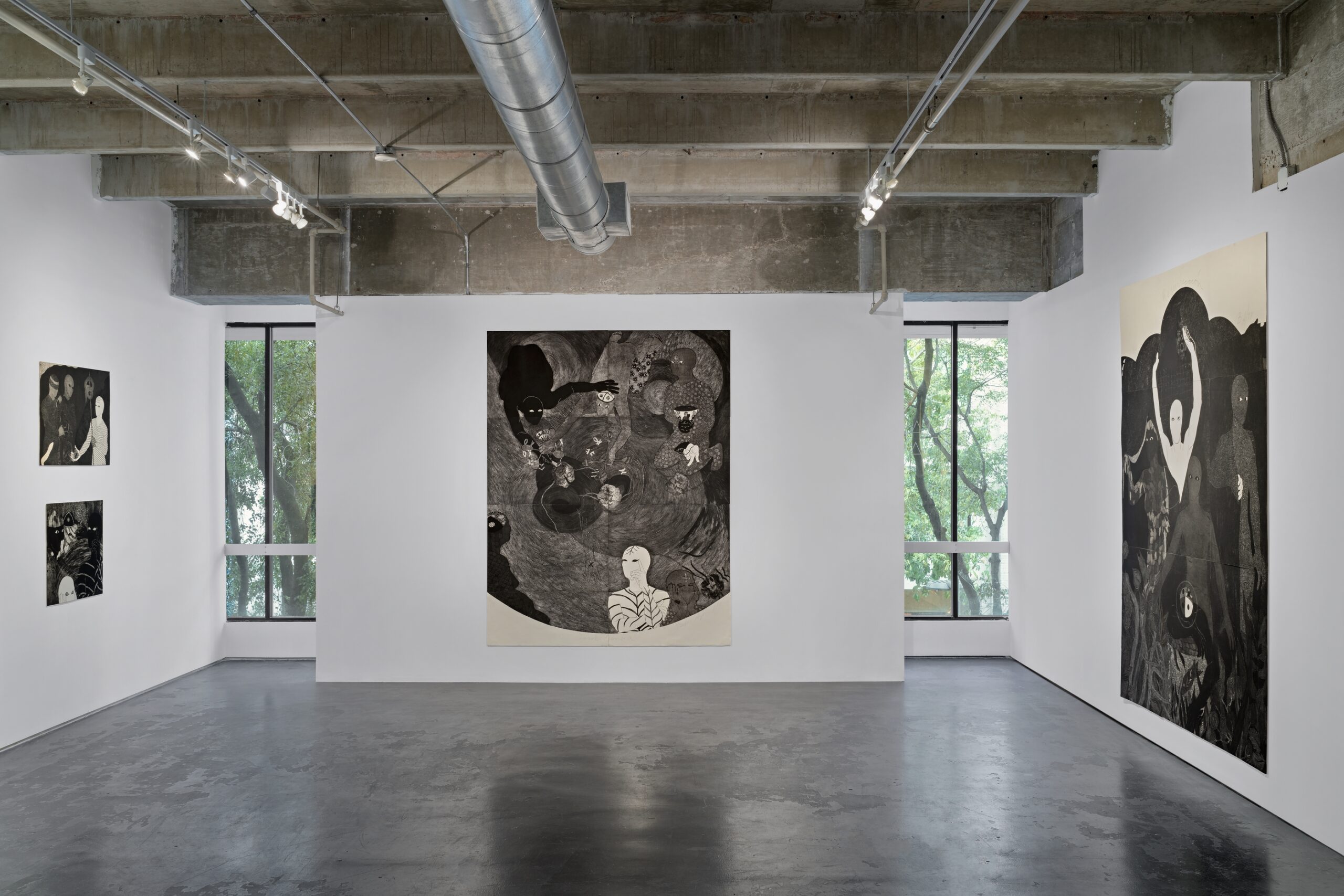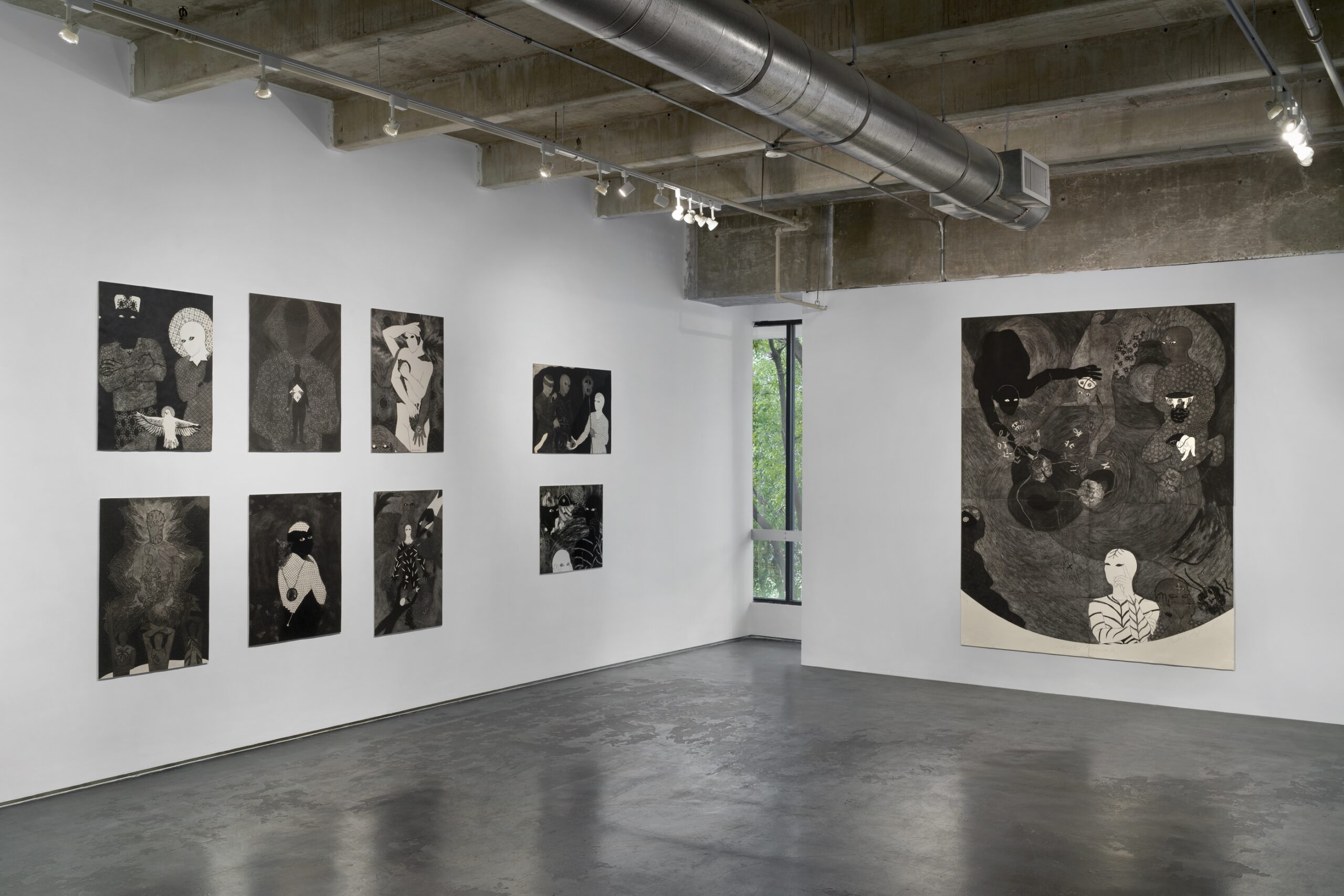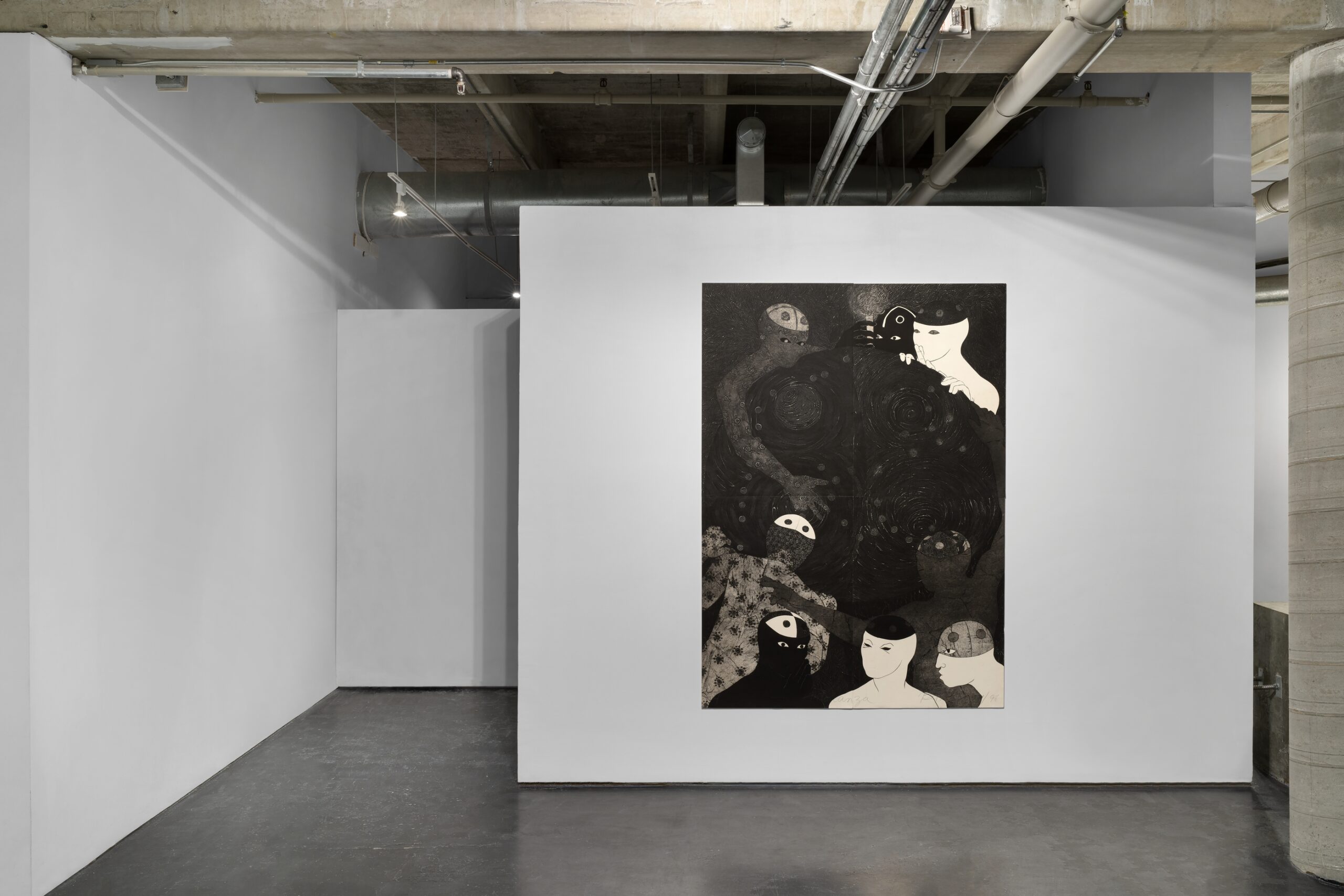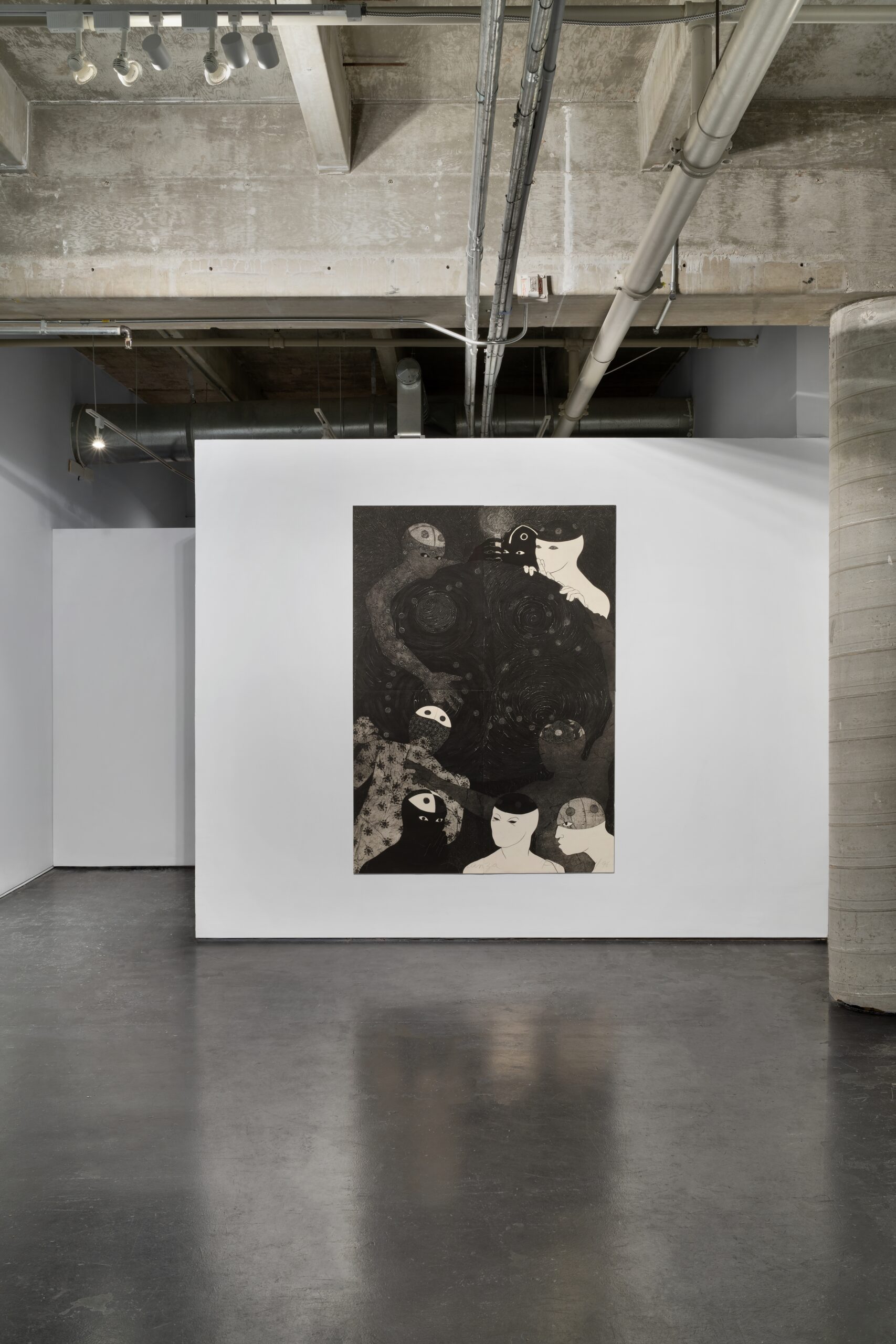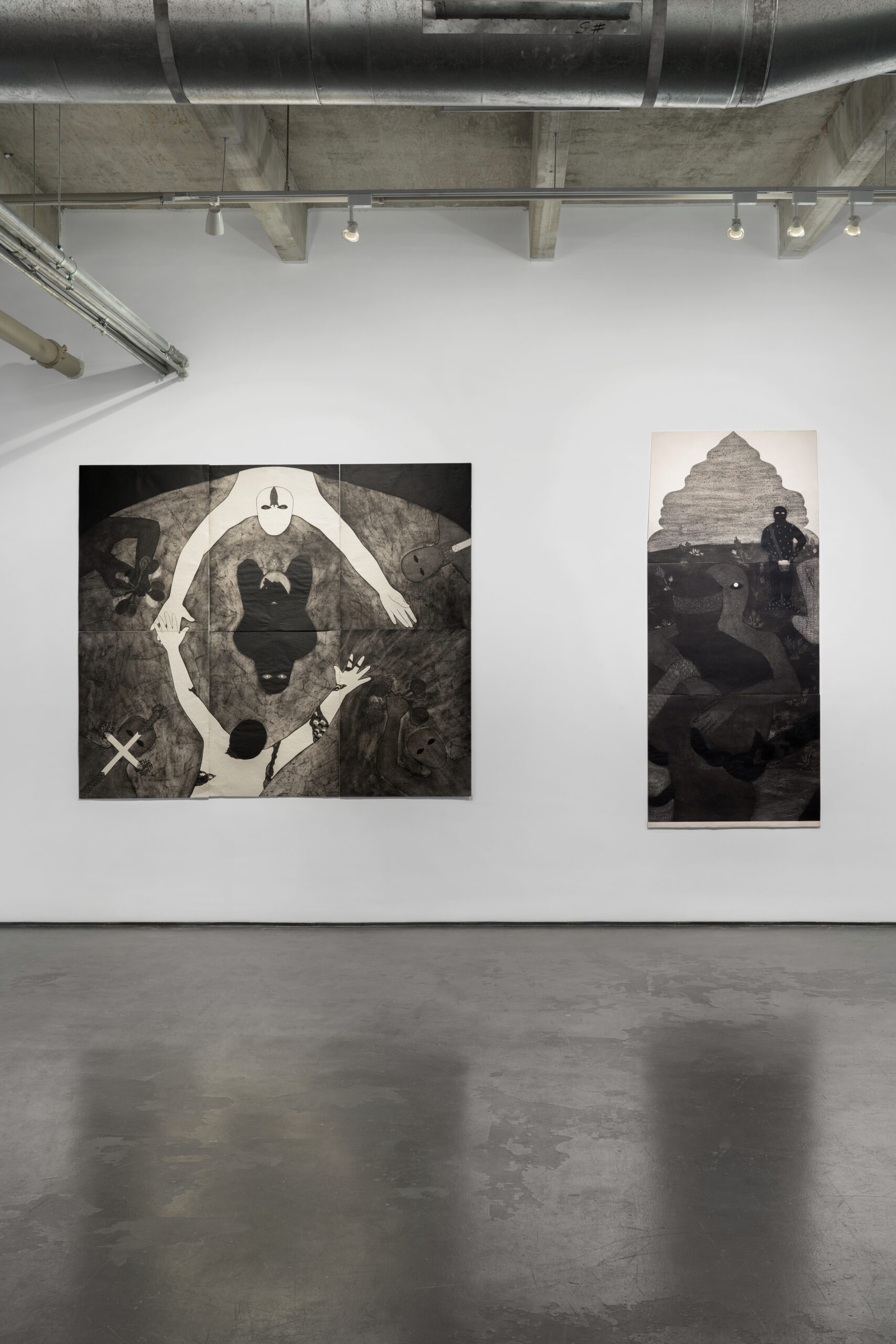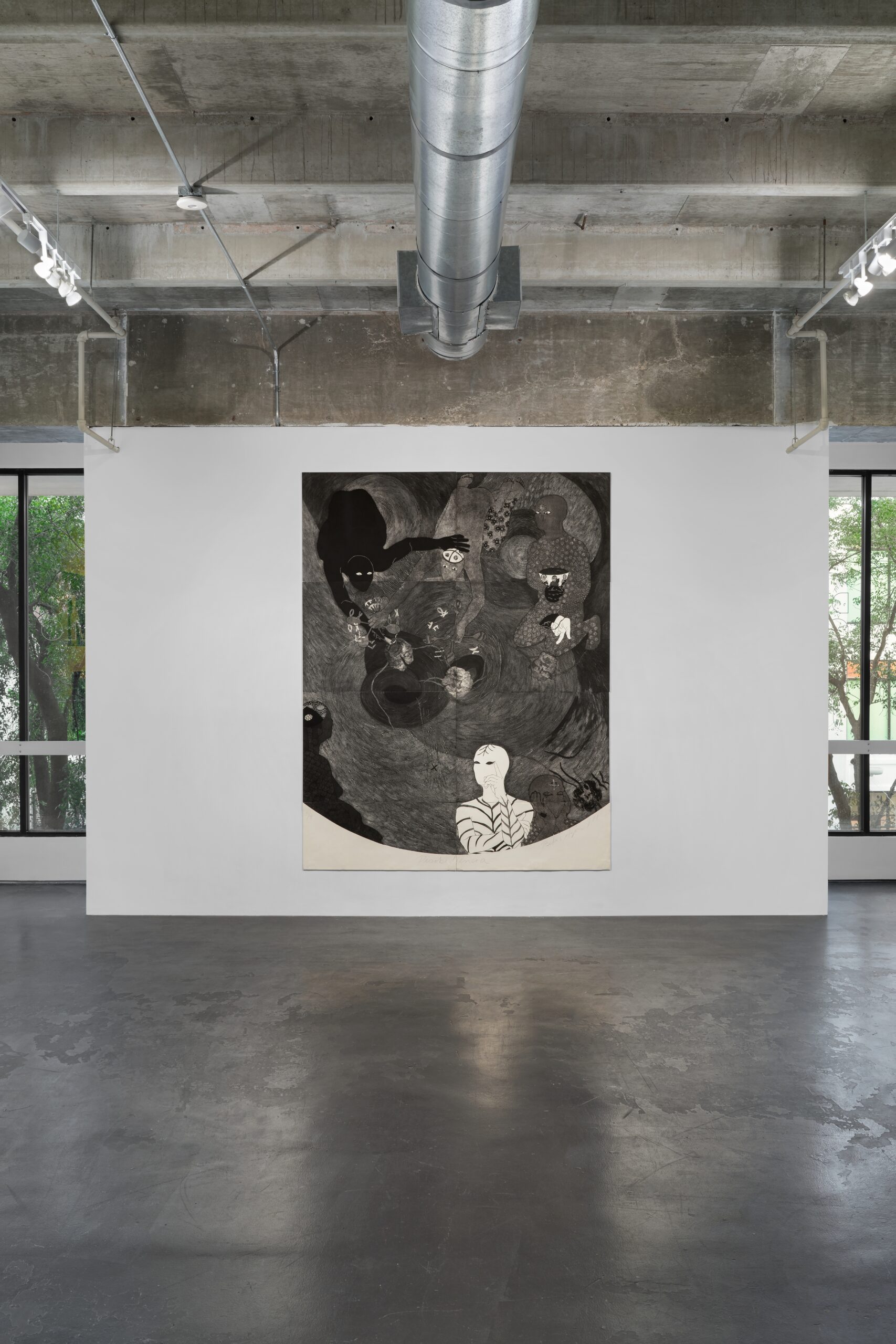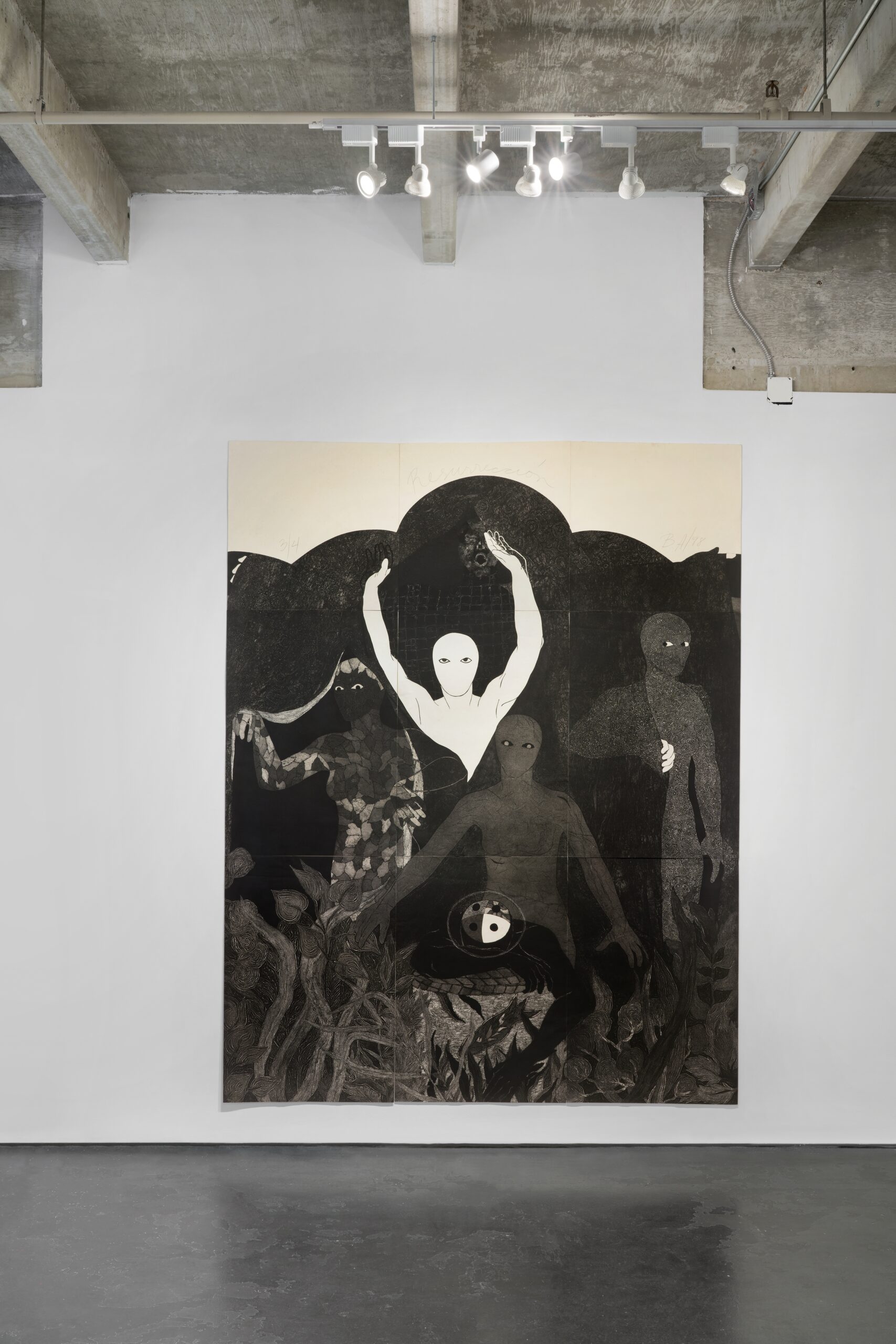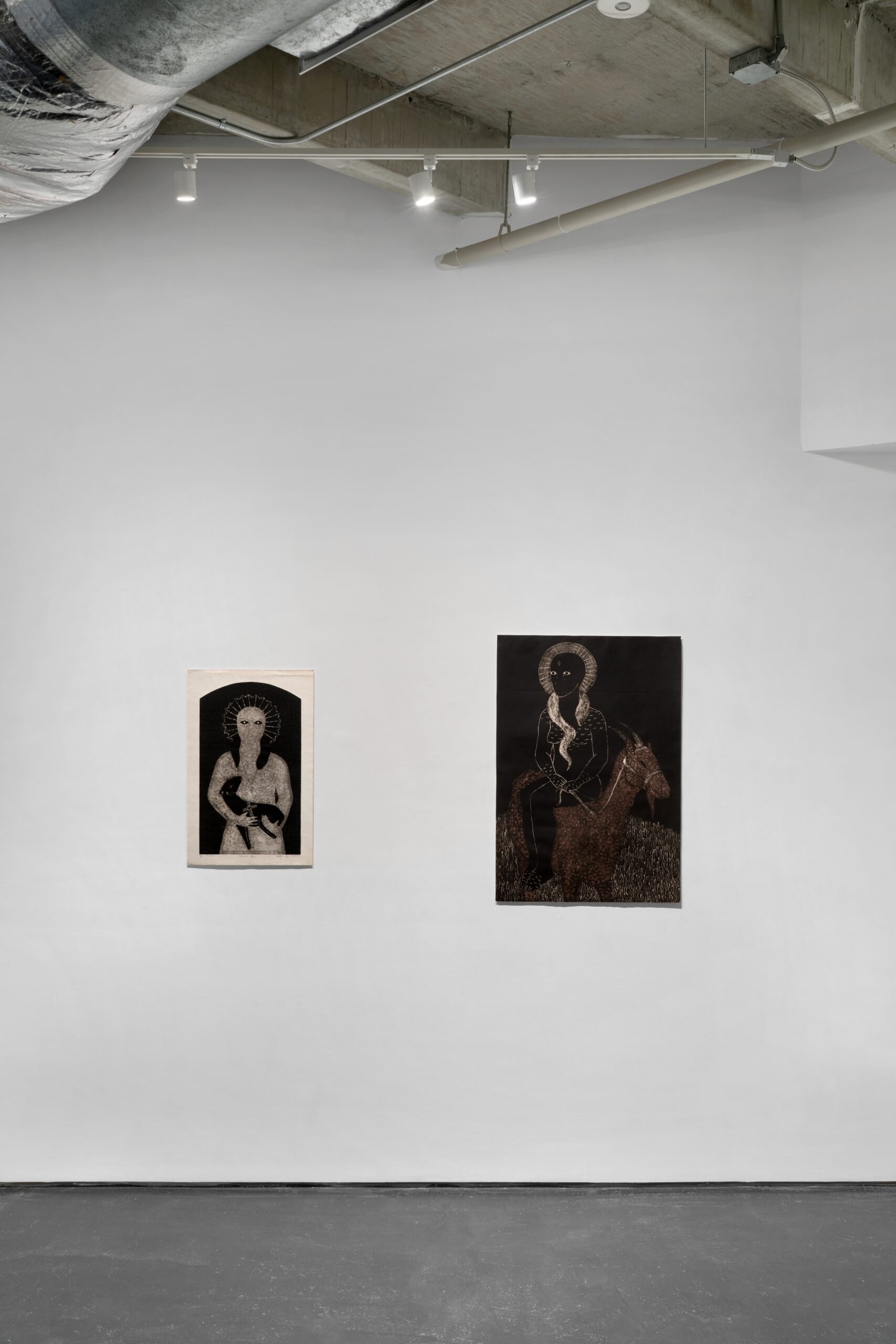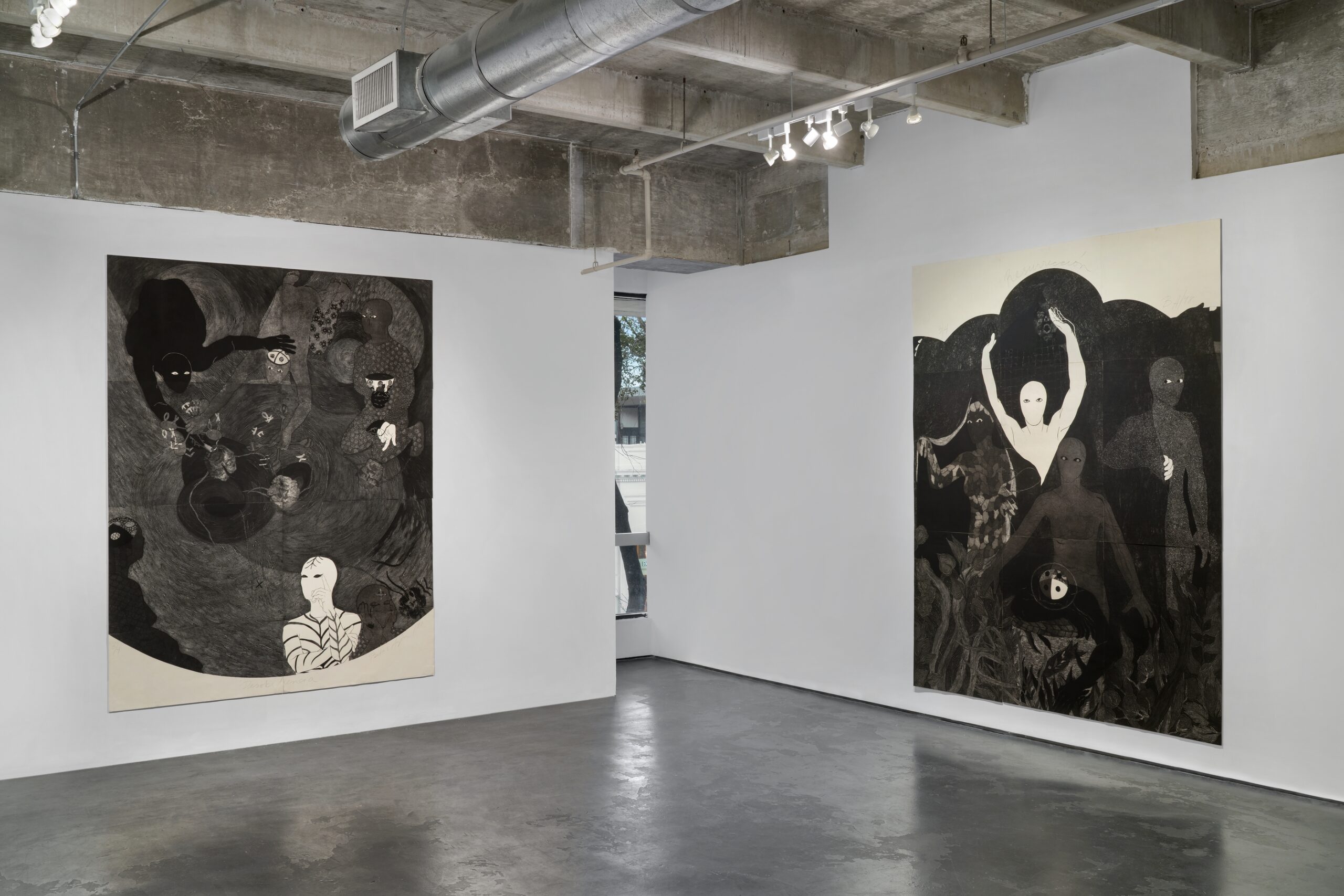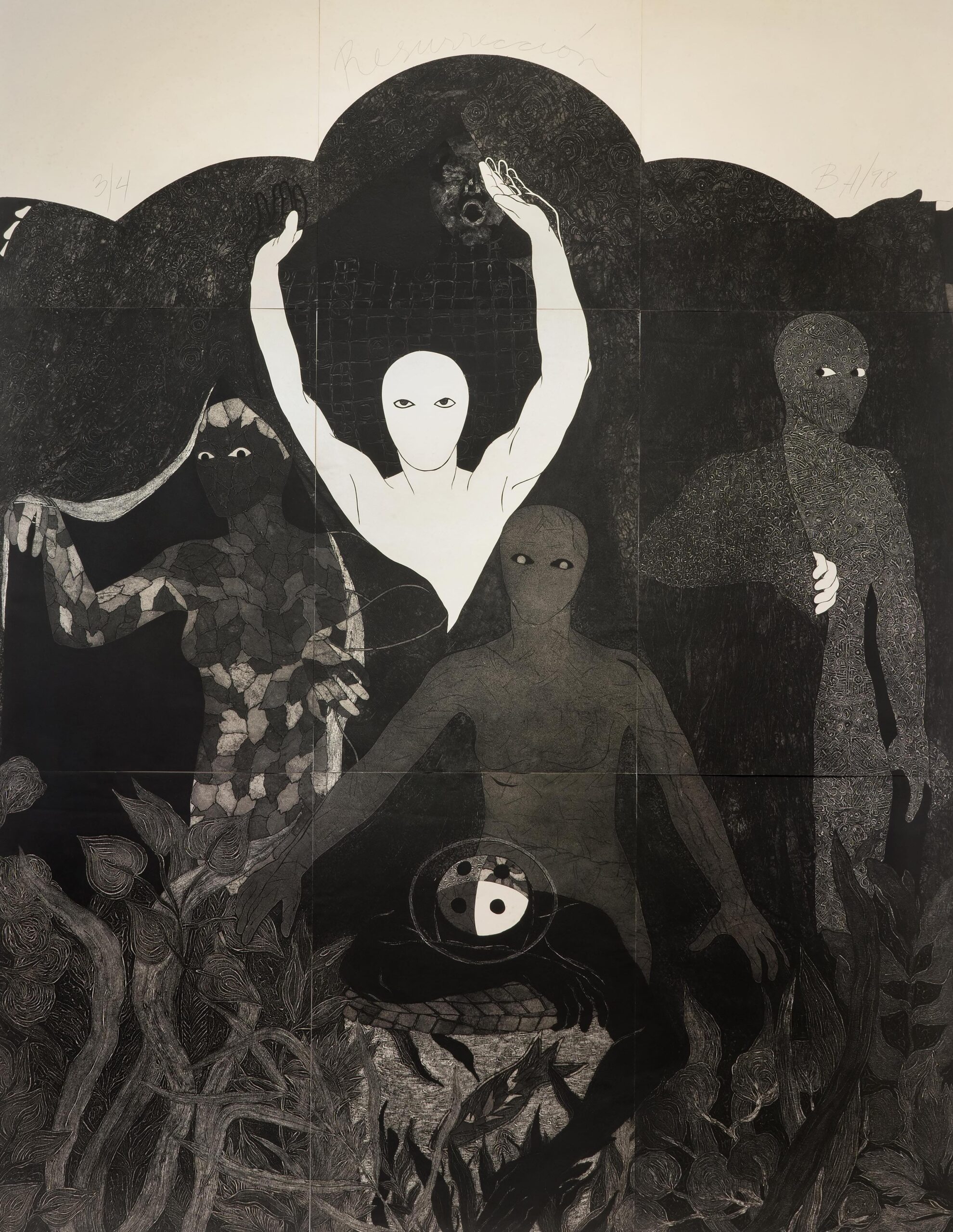Belkis Ayón
Belkis Ayón
January 30 – May 11, 2024
Belkis Ayón was not an overlooked artist, but death interrupted her ascent as a well-known creative. I have never taken the perspective of the “overlooked” or had that vantage point on art and art history. Such viewpoints give credence to hierarchies that only apply insomuch as we allow. Great art finds its way, and Ayón’s work continuously did just that, both during her lifetime and beyond it. Her work has a graphic sophistication that defies the simple materials she had access to. In 1990s Cuba, Ayón was an artist, woman, and person of the African diaspora, with enormous agency through her practice. She not only exercised great creativity but also resourcefulness in her use of materials during Cuba’s Special Period of scarcity.
There are many narratives percolating within Ayón’s practice that scholars and curators have yet to uncover. These include biographical accounts, her materials and their relation to Cuban culture and history, the inks used for the work, feminist narratives, and dialogue with other world religions, to name a few. Beyond Abakuá, the artist explored broad cultural ideas such as gender roles, the forbidden, and hierarchies. Although she passed away twenty-five years ago, her work continues to feel new and remains relevant to contemporary art and society. Ayón created a poignant and cohesive body of work within a very short period of time.
The artist’s influence on the art world is evidenced by both her inclusion in major international exhibitions during her lifetime (45th Venice Biennale) and the ongoing recent retrospectives of her work, beginning with the Fowler Museum at UCLA in 2016 and continuing most recently with the Museo Reina Sofia in Madrid; she also had major presentations at the 59th Venice Biennale and the 34th Bienal de São Paulo. Her practice has left an imprint on the work of many artists today, some of whom have devoted their research to Ayón. The first time I saw her work, its visual presence was revitalizing to my expert eye. Its remarkable, intense quality draws in viewers of any background. Ayón was a virtuoso of eagle-eyed simplicity—in palette, materials, and sensory information.
I hope this exhibition & publication—which allows us to hear from the artist herself in two historical interviews, alongside some notable works—inspires more insight into Ayón’s captivating practice. The monograph published by [NAME] Publications complements the first gallery solo exhibition of the artist’s work since her death in 1999. The exhibition, which will take place at David Castillo from January to April 2024, is organized in collaboration with the Belkis Ayón Estate in the same year as two major gallery sales of the artist’s rare multi-panel works- one to the National Gallery of Art in Washington, D.C. (Untitled, Woman in Fetal Position) and the other to The Museum of Modern Art in New York (Resurrection). I am honored to present such a historically significant exhibition at my gallery after nearly 20 years and 160 shows. I dedicate this exhibition & publication to Katia Ayón, late sister of the artist and founder of the Belkis Ayón Estate. Her tireless work has built a consummately professional estate that collaborates with institutions, curators, and scholars around the world and is led today by Ernesto Leyva, Yadira Leyva Ayón, and Yaisa Leyva Ayón. Belkis Ayón’s story is in part one of family devotion to one of the greatest artists of the late twentieth century, whose contributions to society and culture are only beginning to be unraveled.
David Castillo
Foreword for Belkis Ayón
Published by [NAME] Publications
in collaboration with the Belkis Ayón Estate
January 2024
Belkis Ayón
A conversation between Odette Casamayor-Cisneros, Ph. D., Adrián Emanuel Hernández-Acosta, Ph. D. and, David Font-Navarrete, Ph. D. moderated by Donna Honarpisheh, Ph. D.
May 11, 2024
2pm
David Castillo, Miami
3930 NE 2nd Ave, Suite 201
Join us on Saturday, May 11th at the gallery for a closing panel in celebration of our current exhibition “Belkis Ayón”, the artist’s first solo gallery presentation since her death in 1999. This panel will draw from the fields of theology, ethno-musicology, art history, comparative literature and cultural studies respectively to explore the artist’s oeuvre and legacy. The panel will be followed by a brief Q & A and light refreshments.
This event is free and open to the public and there is no RSVP required.
Learn about our panelists:
Odette Casamayor-Cisneros, Ph. D. is an Associate Professor of Latin American & Caribbean Cultural Studies at the University of Pennsylvania, and the Inaugural Roberto C. Goizueta Distinguished Presidential Fellow at the University of Miami’s Cuban Heritage Collection. The author of Utopia, dystopia e ingravidez: reconfiguraciones cosmológicas en la narrativa postsoviética cubana (Vervuert, 2013) and the collection of stories Una casa en los Catskills (Secta de los perros & Letras cubanas, 2013 & 2016), she is currently writing two new books: In Black Ink: Writings from the Flesh of a Black Cuban Woman and On Being Blacks: Self-Identification Processes and Counter-Hegemonic Knowledge in Contemporary Cuban Cultural Production. Prof. Casamayor has been the recipient of Rockefeller and UNESCO-funded fellowships, the “Juan Rulfo” Prize from Radio France International in Paris, and the “José Juan Arrom” Prize for Literary Essay in Havana.
Adrián Emmanuel Hernández Acosta is Assistant Professor of Religion and Literature at Yale Divinity School and the Yale Institute of Sacred Music. Hernández Acosta’s research and teaching examines the relationship between religion and the arts through the extensive artistic catalogue of the Hispanophone Caribbean and its diasporas. His first book manuscript, tentatively titled Furies: Poetic Mediations in the Wake of Death, analyzes how two queer Cuban poets—José Lezama Lima and Virgilio Piñera—critically drew on Greco-Roman myth to argue with each other over poetry’s aesthetic, ethical, and political mediation of mourning in the wake of death. His second book manuscript analyzes portrayals of African diaspora religions in scenes of mourning within select Dominican, Puerto Rican, and Cuban texts from the past fifty years as well as in visual art, cinema, and music. With these two book projects, Hernández Acosta develops what he calls a “mortuary poetics.”
He has previously worked as a hospital chaplain at Massachusetts General Hospital and as a GED adult educator for those on parole and probation in the greater Boston area.
David Font-Navarrete is a musician, artist, and ethnomusicologist. He is currently Associate Professor in the Department of Music, Multimedia, Theatre, and Dance at Lehman College at the City University of New York (CUNY). He is a member of the doctoral faculty in Music at the CUNY Graduate Center.
Font has conducted primary research in Cuba, Senegal, the Gambia, and the United States. Recurring themes in his research include: the confluence of Afro-Atlantic cultural traditions, avant-garde art, and ethnography; cultural archives; and multimedia technologies. His research publications include articles for the Yale Journal of Music and Religion, Religions, Ethnomusicology Review, the Journal of Popular Music Studies, Musicology Now, and contributions to edited volumes.
Most recently, his annotated English translation of Lydia Cabrera’s magnum opus, El Monte: Notes on the Religions, Magic, and Folklore of the Black and Creole People of Cuba, was published by Duke University Press in 2023. His current projects include: an annotated archival edition of Música de los cultos africanos en Cuba (The Cabrera-Tarafa Collection of Afro-Cuban Sacred Music, ca. 1956); a translation of Rosa Marquetti’s Celia Cruz in Cuba (1925-1962) for Duke University Press; and an edited volume titled The Music in Lydia Cabrera’s El Monte (1954) and The Sacred Lagoon (1973). He is at work on Art at the Edge of Tradition: Notes on Orisha, Music, and the Age of Multimedia, his monograph for the Underground Culture series published by Indiana University Press.
Donna Honarpisheh is the Associate Curator of the Knight Foundation Art and Research Center at the Institute of Contemporary Art, Miami, a scholar of Comparative Literature and Critical Theory, and the host of ICA Miami’s podcast, Tomorrow is the Problem, which covers pressing issues in art and culture. Most recently, Honarpisheh has curated two notable exhibitions at ICA Miami, “Ahmed Morsi in New York: Elegy of the Sea” and “Huguette Caland: Outside the Line (1970 – 84)”. She has taught undergraduate courses in Global Modernisms and Postcolonial Studies at Fordham University, Sarah Lawrence College, and UC-Berkeley. Honarpisheh has delivered lectures at Princeton University, UCLA, UC-Berkeley and New York University among others. She has contributed to Qui Parle Journal, published by Duke University Press, symploke Journal, published by University of Nebraska Press and Hyperallergic.
She is currently working on a forthcoming academic book, “Affliction as Form: Iranian Modernism in the Wake of the Coup”.
The Belkis Ayón Panel with David Castillo, Glexis Novoa and Gean Moreno
Hosted by Books and Books in Coral Gables
April 24, 2024
8 – 9 pm
Books and Books, 264 Aragon Ave, Coral Gables
Books & Books is proud to present an evening with David Castillo, Glexis Novoa, and Gean Moreno discussing Belkis Ayón. Published in collaboration with David Castillo, Belkis Ayón is an 89-page bilingual monograph focusing on the voice and work of the late printmaker. The book includes two historical interviews with filmmaker Ines Anselmi and the late journalist Jaime Sarusky, providing insights into Ayón’s methods, style, and her exploration of Abakuá fraternal society in Cuba.
This event is free and open to the public and books will be available for purchase the night of the event.
